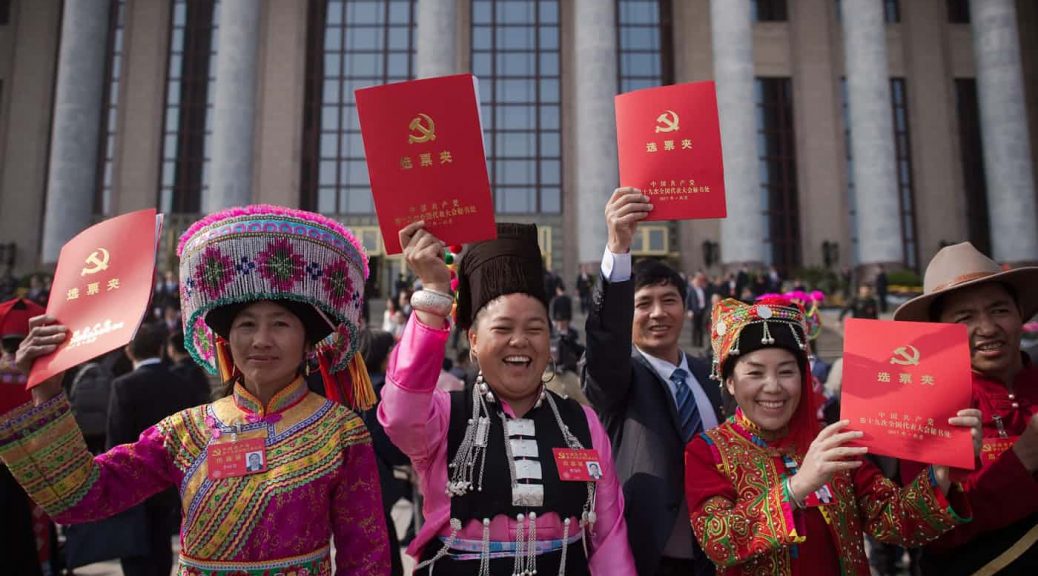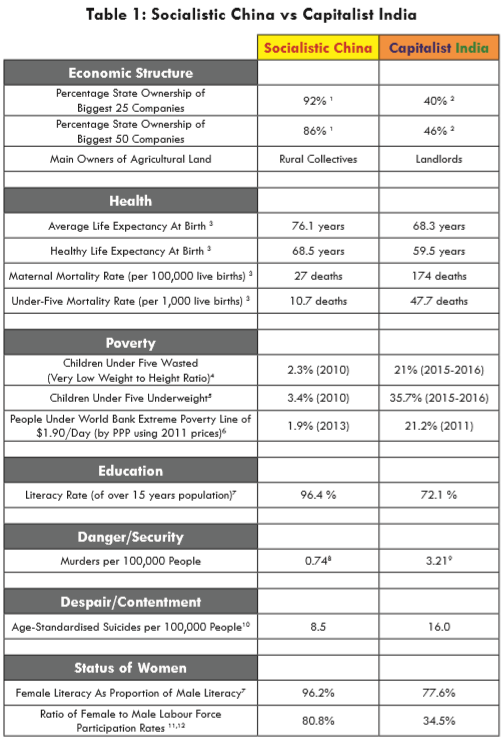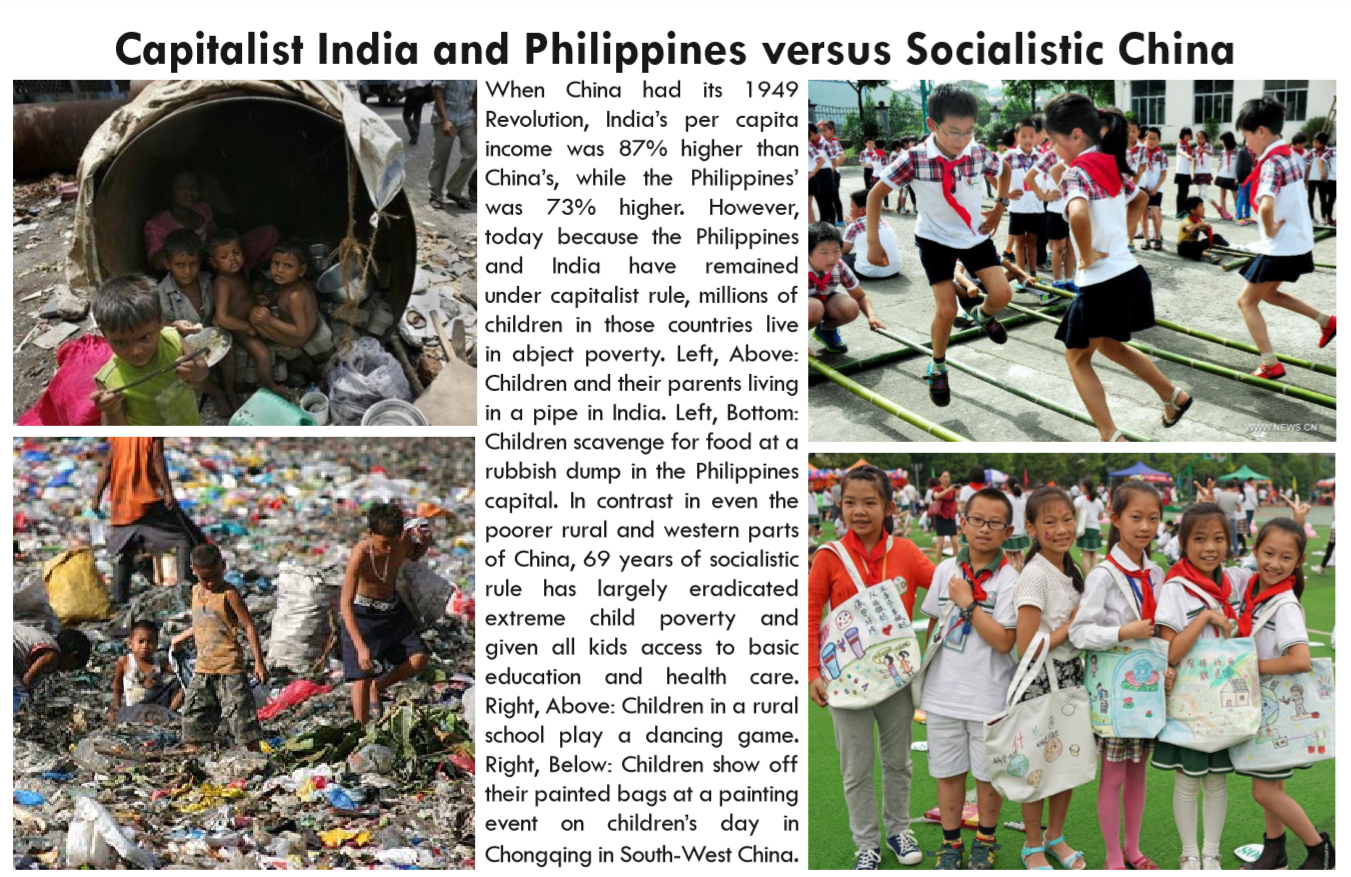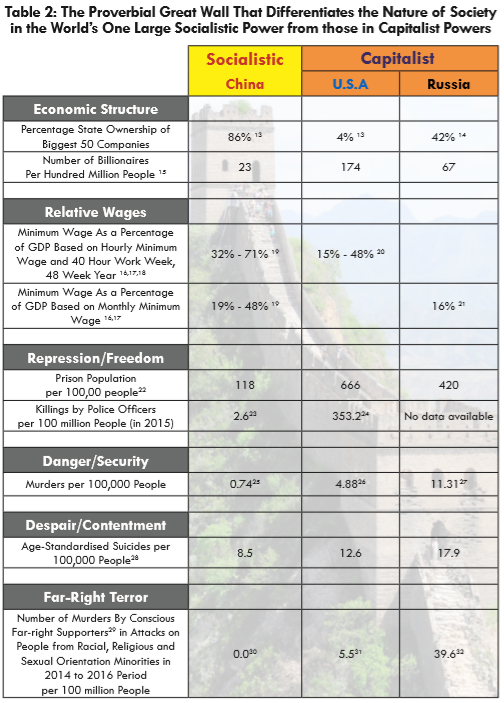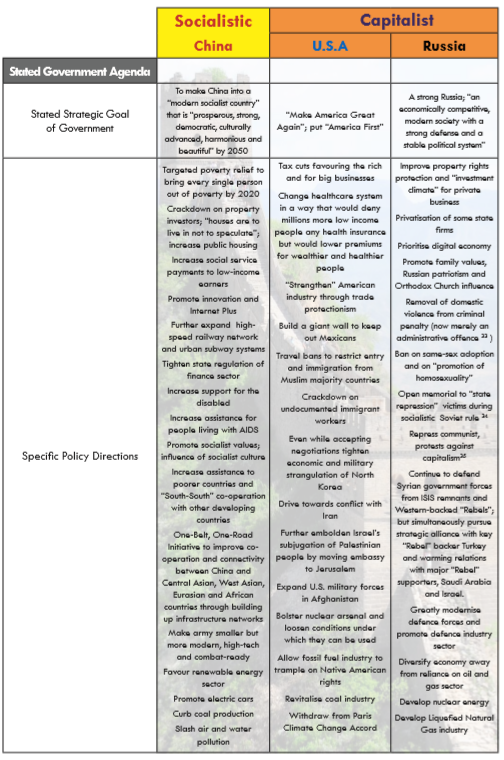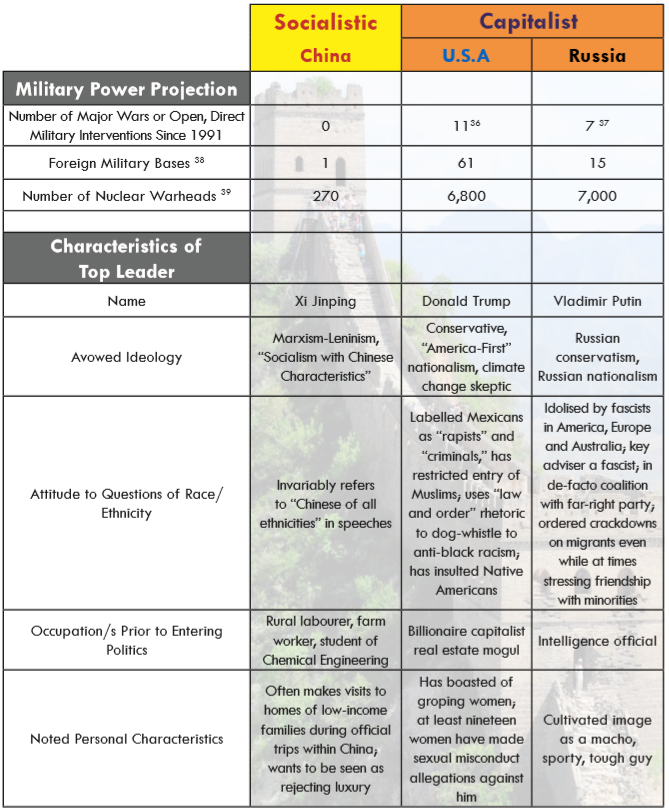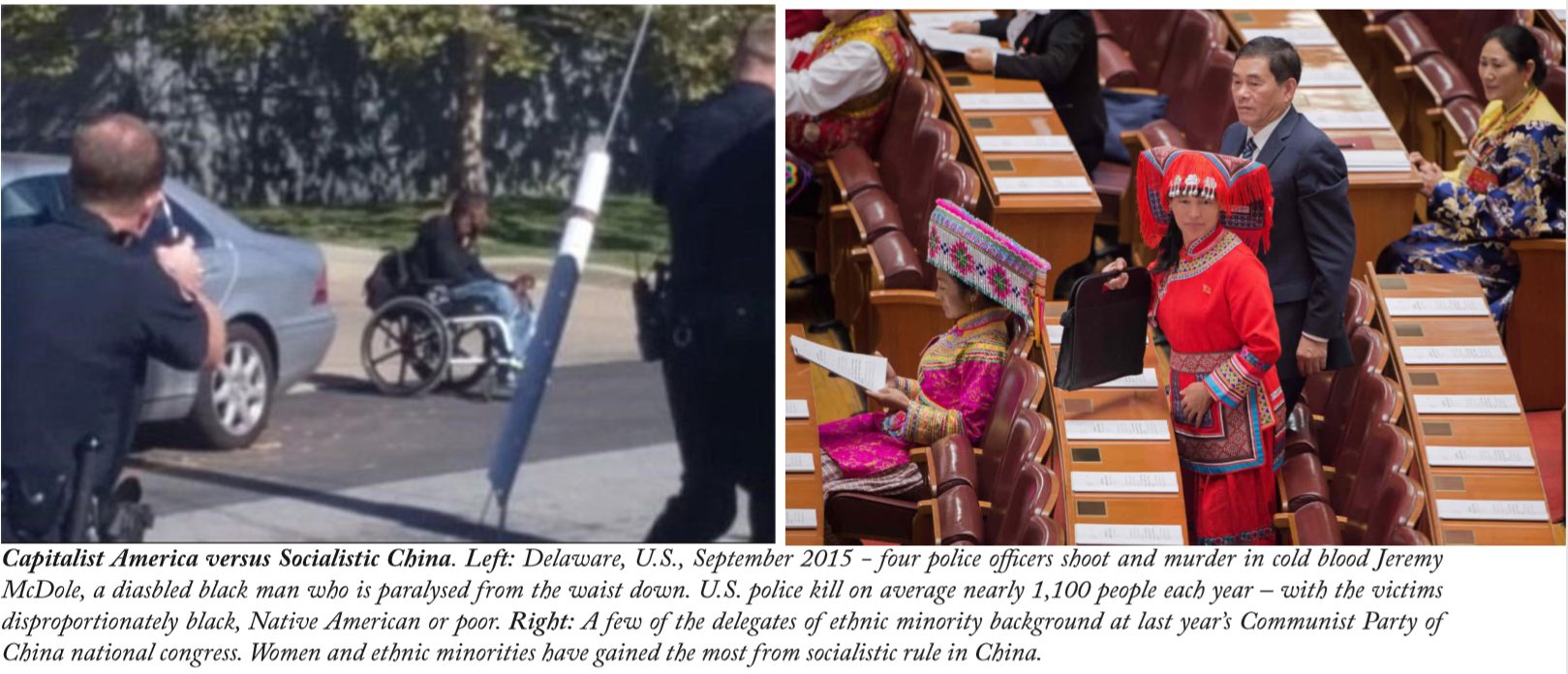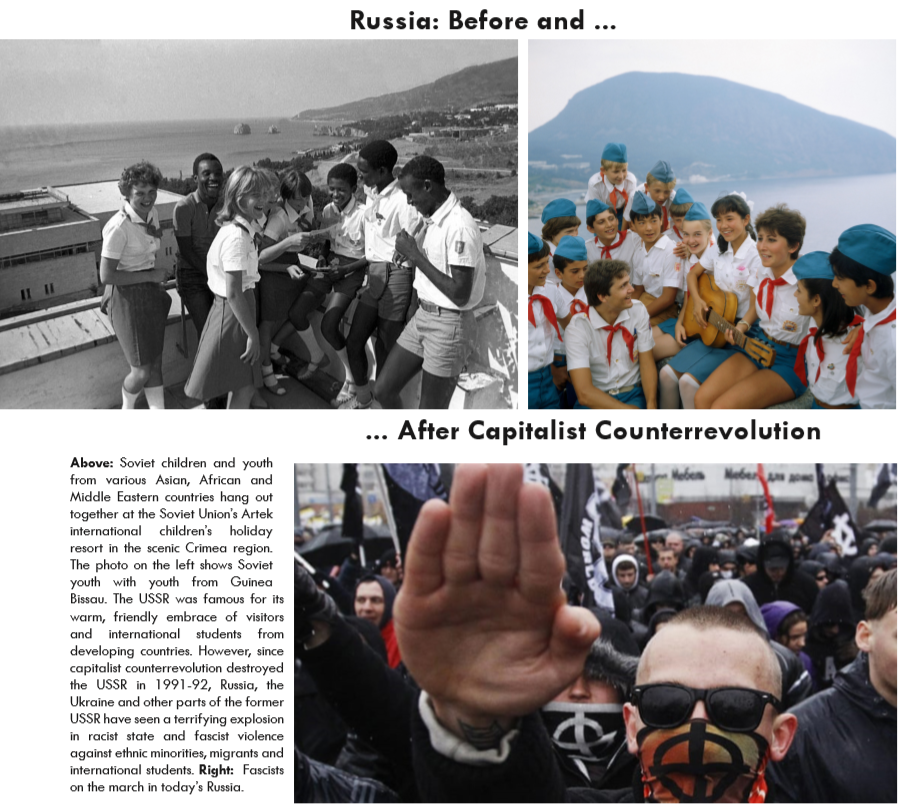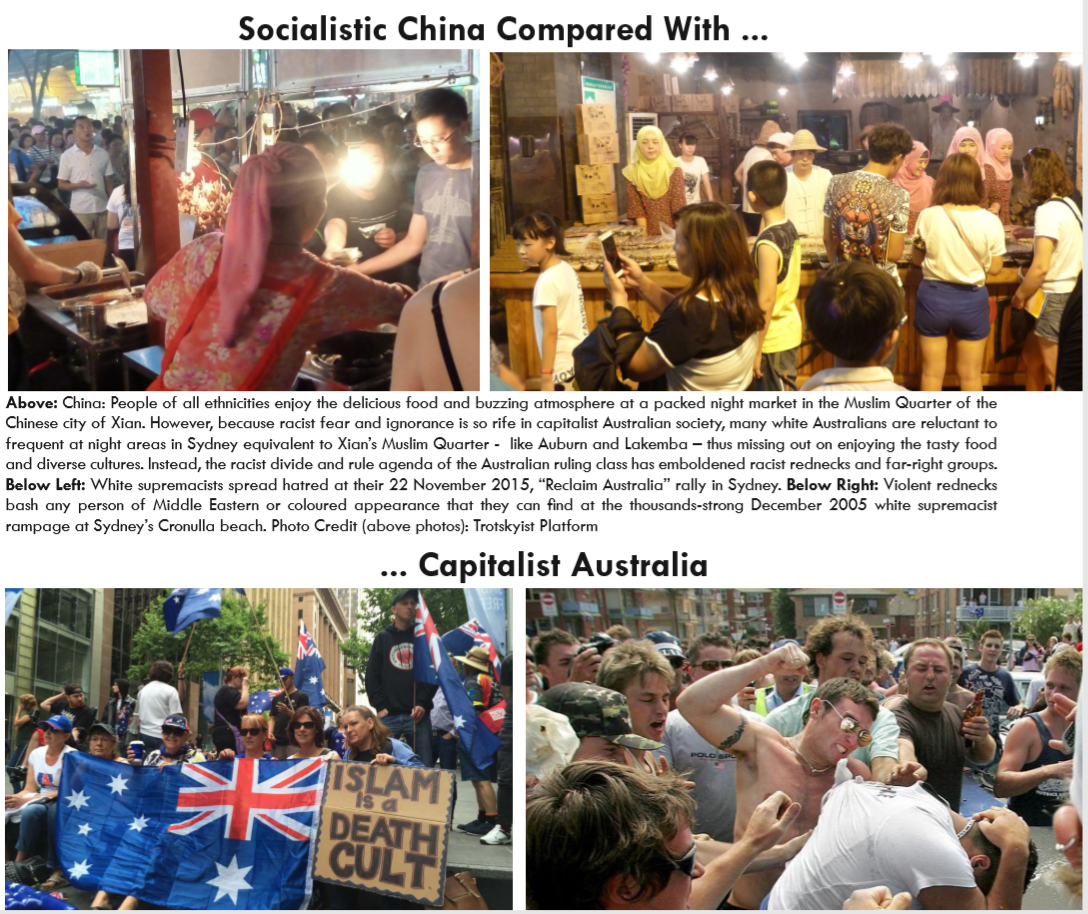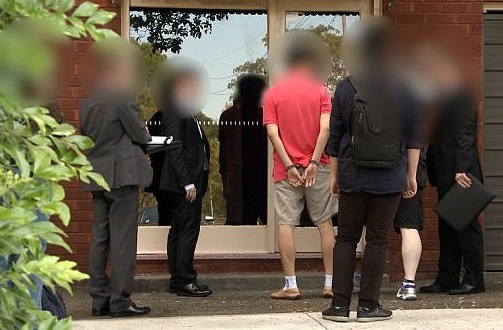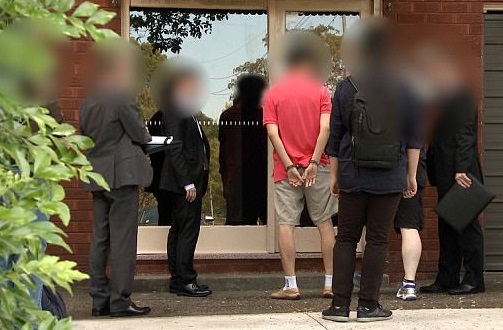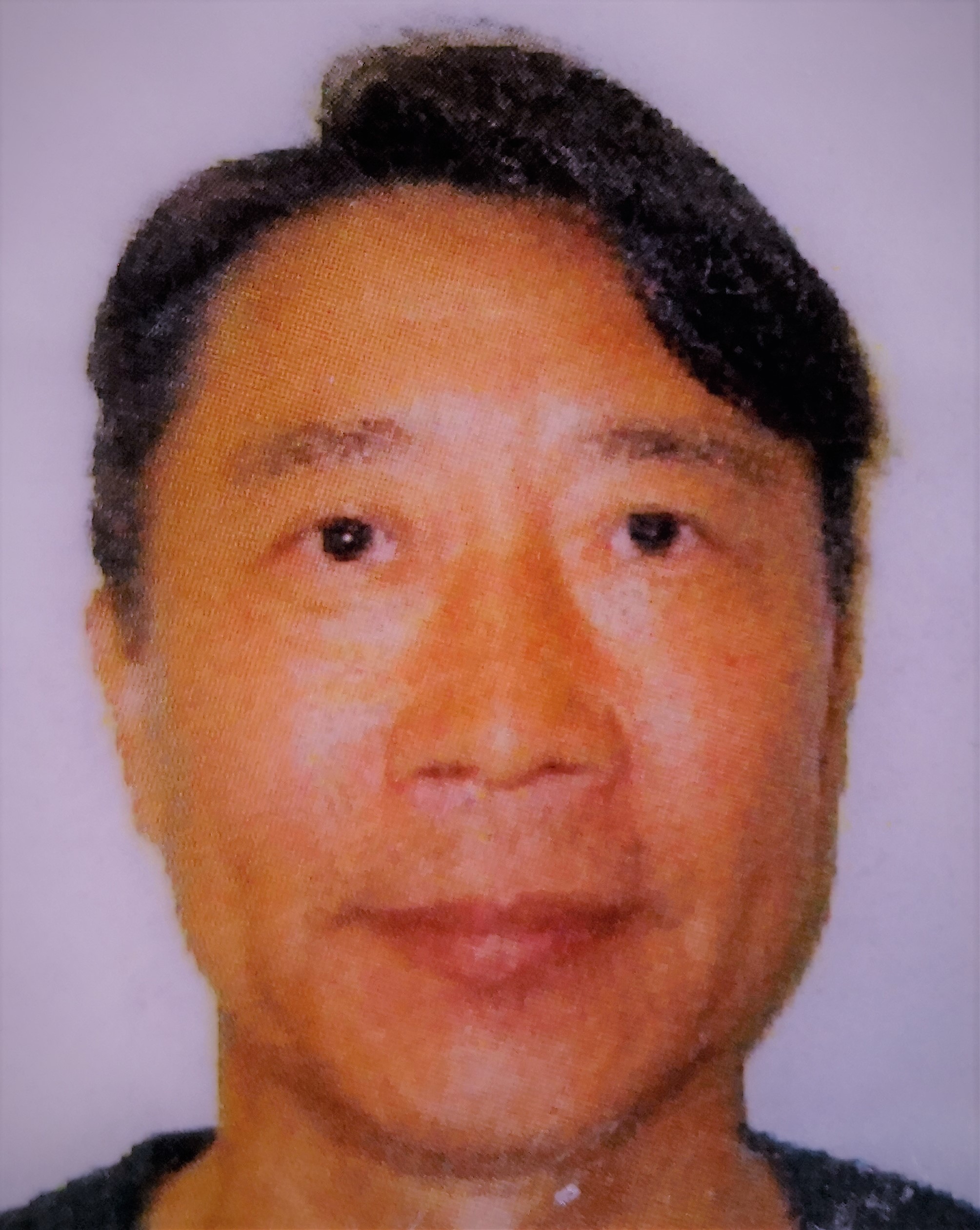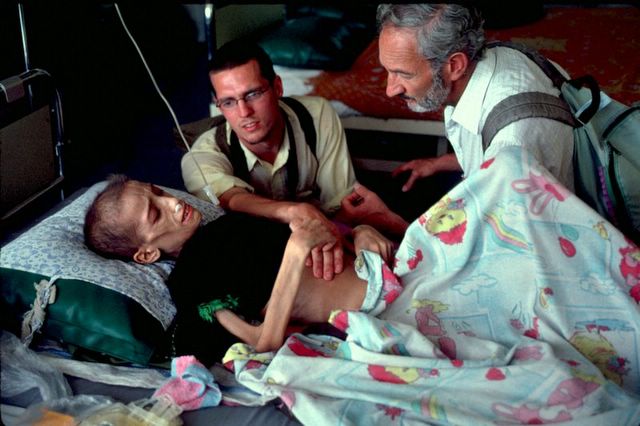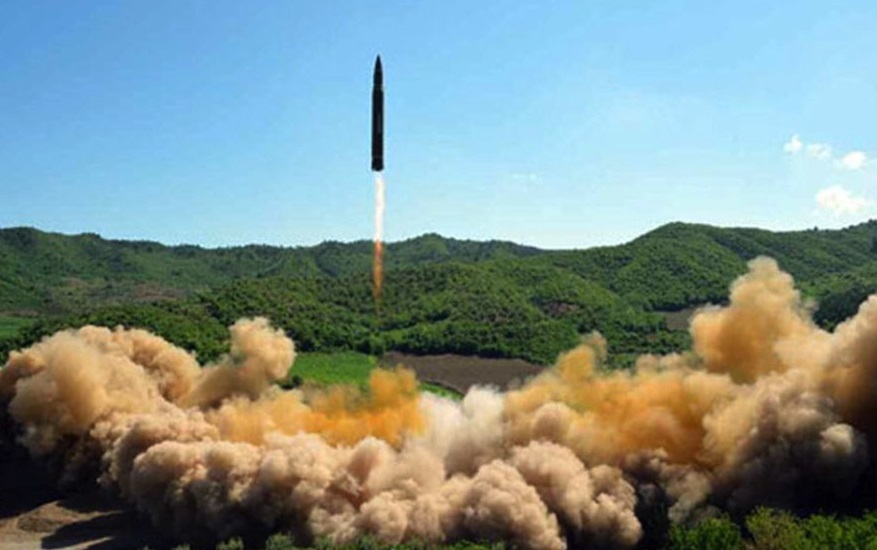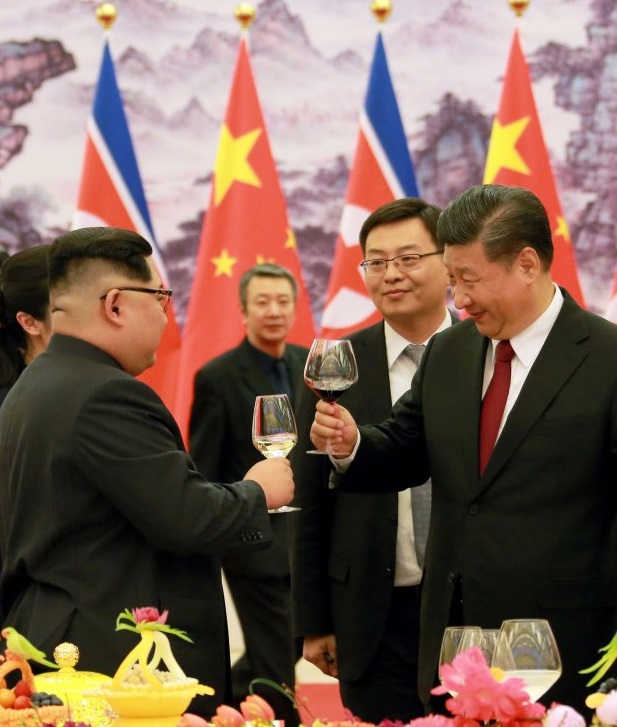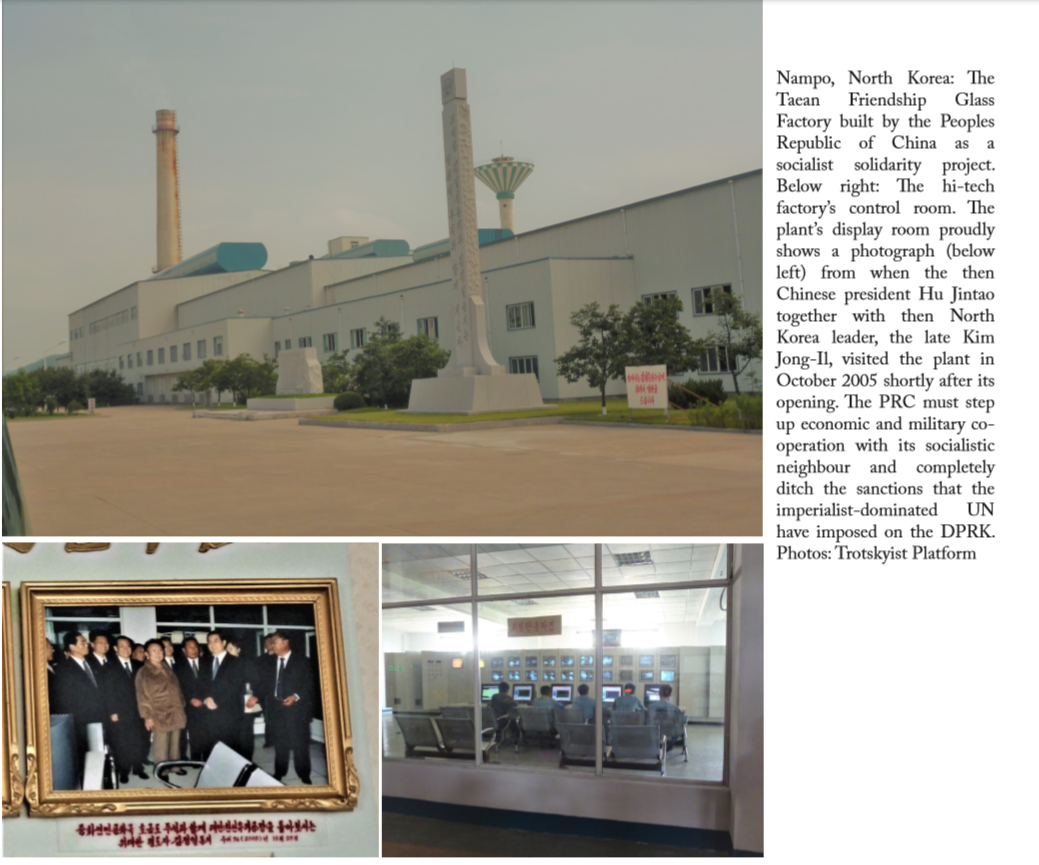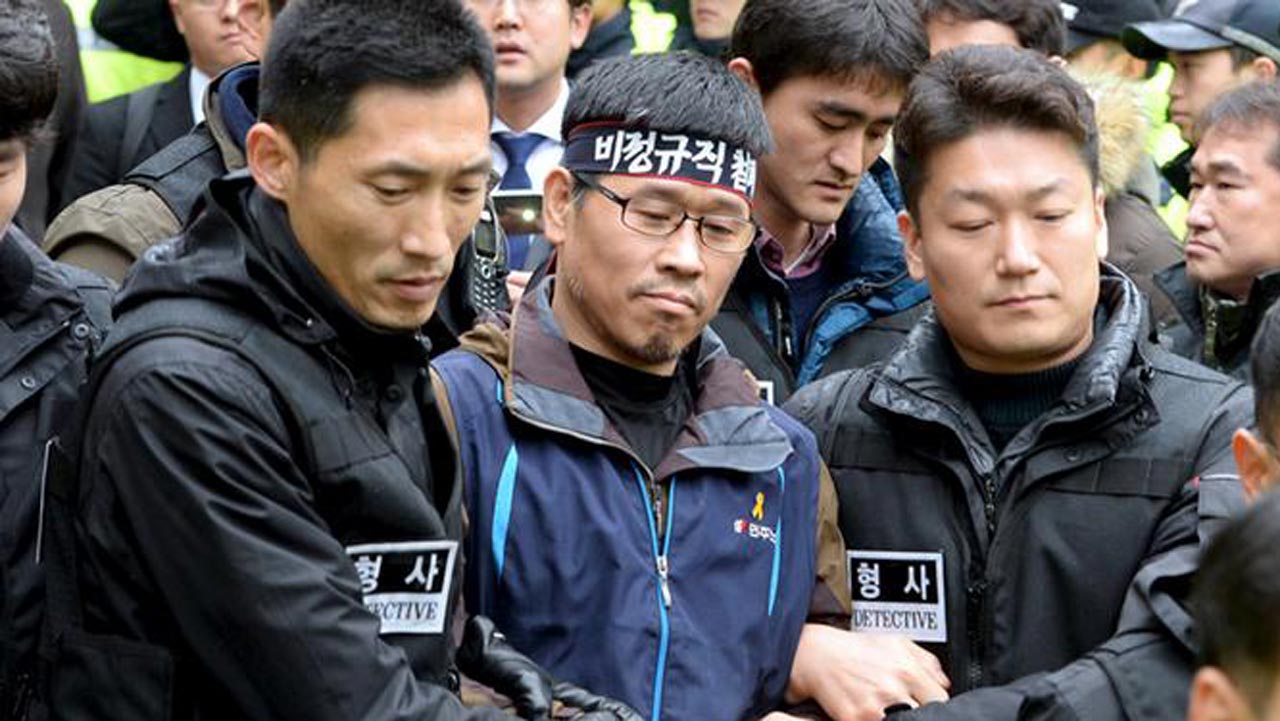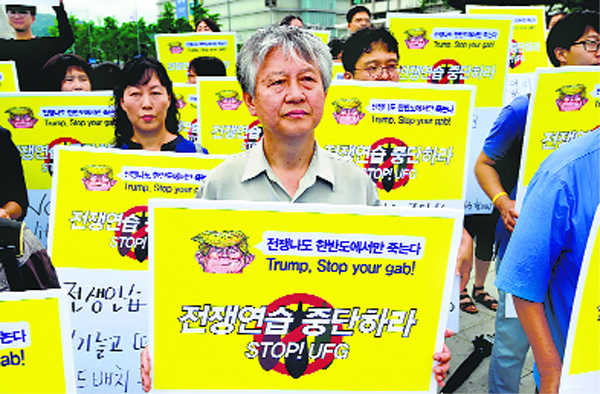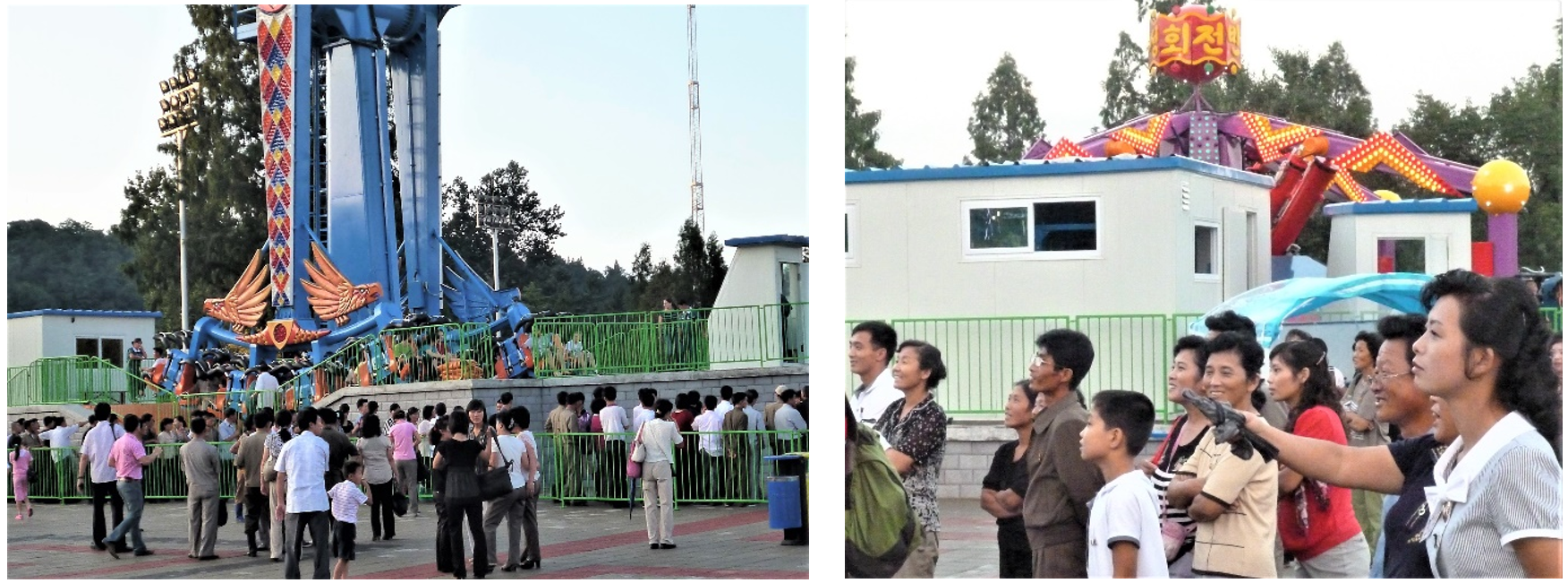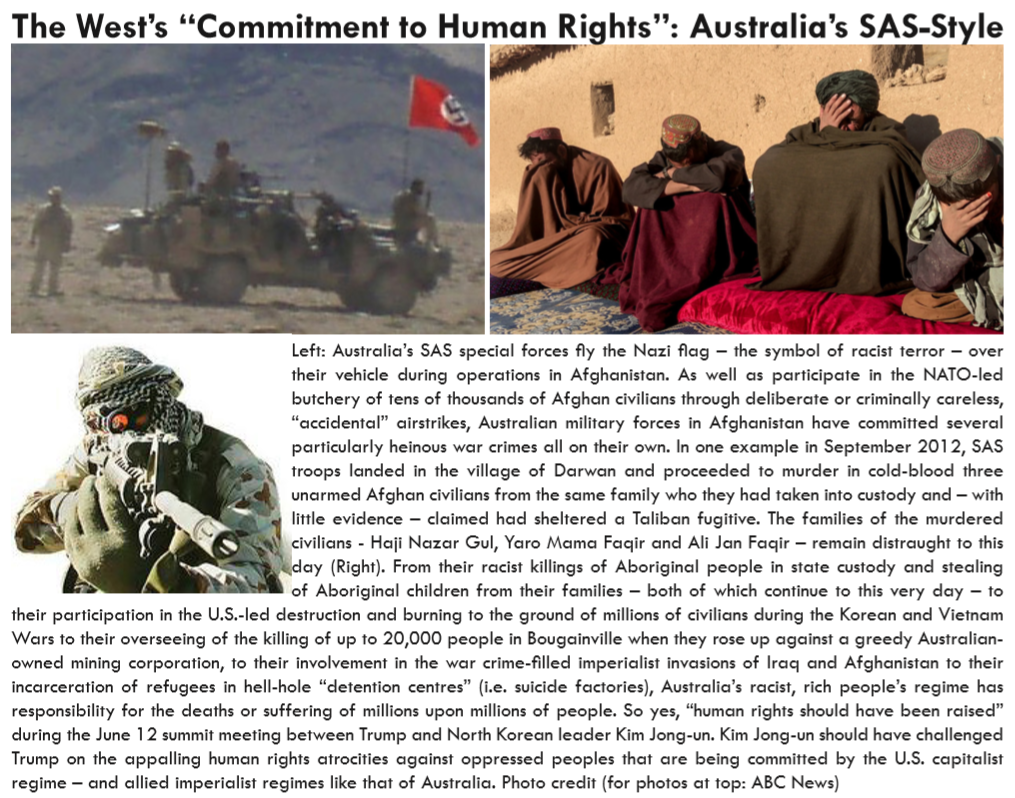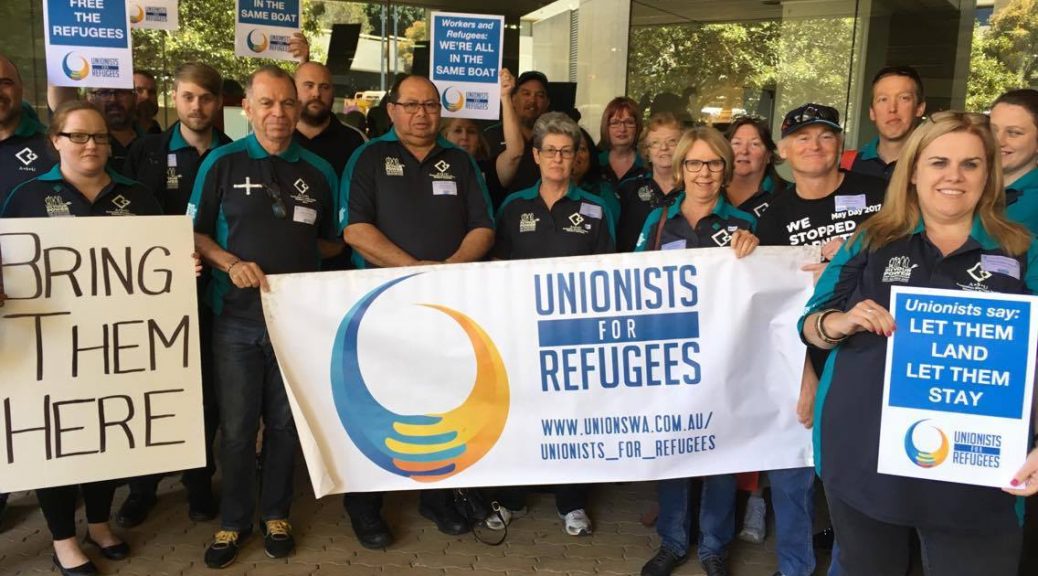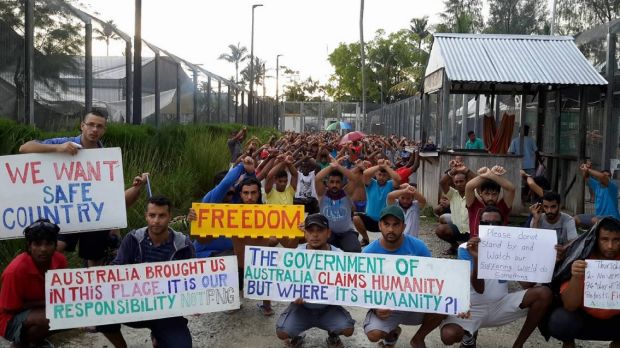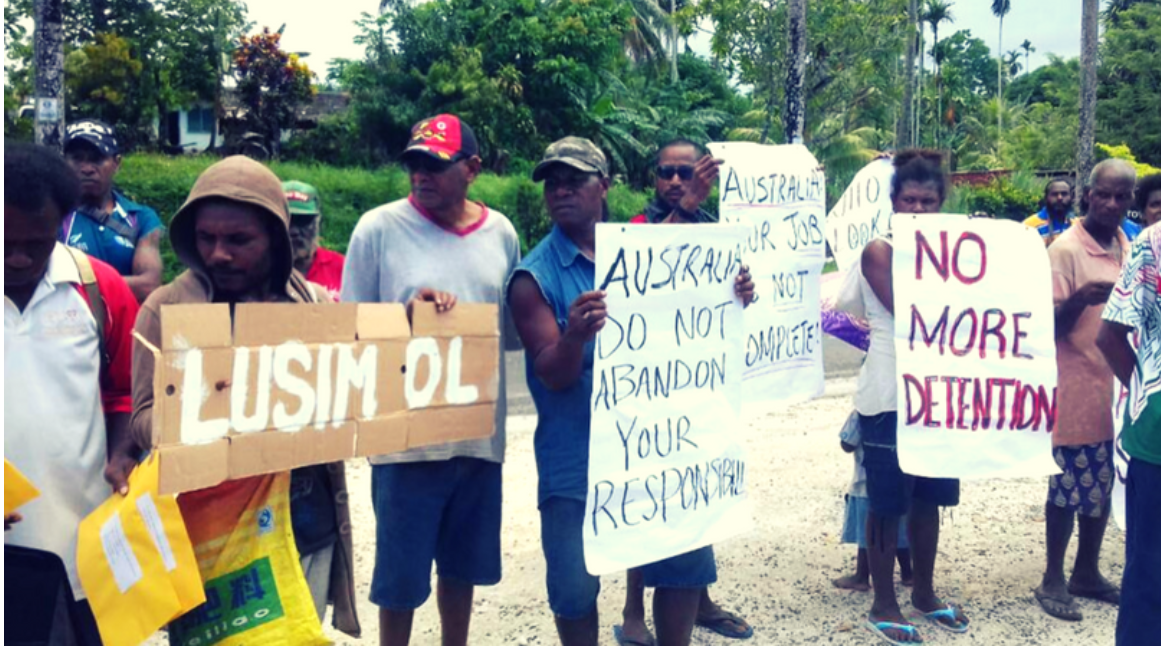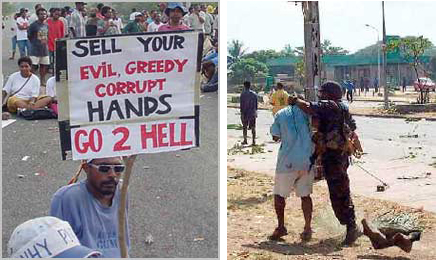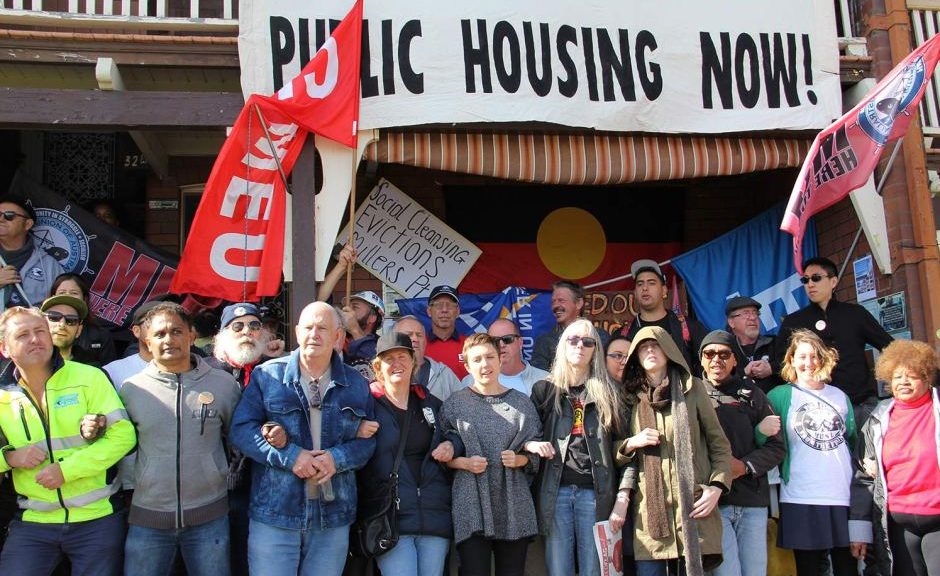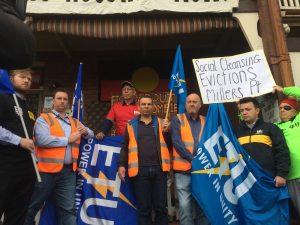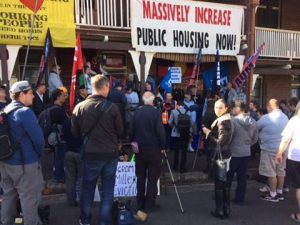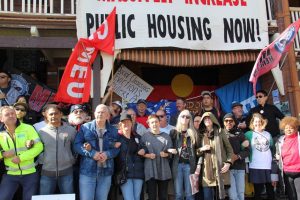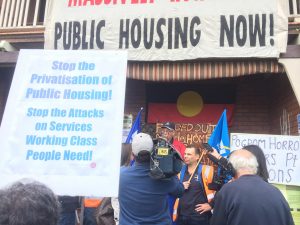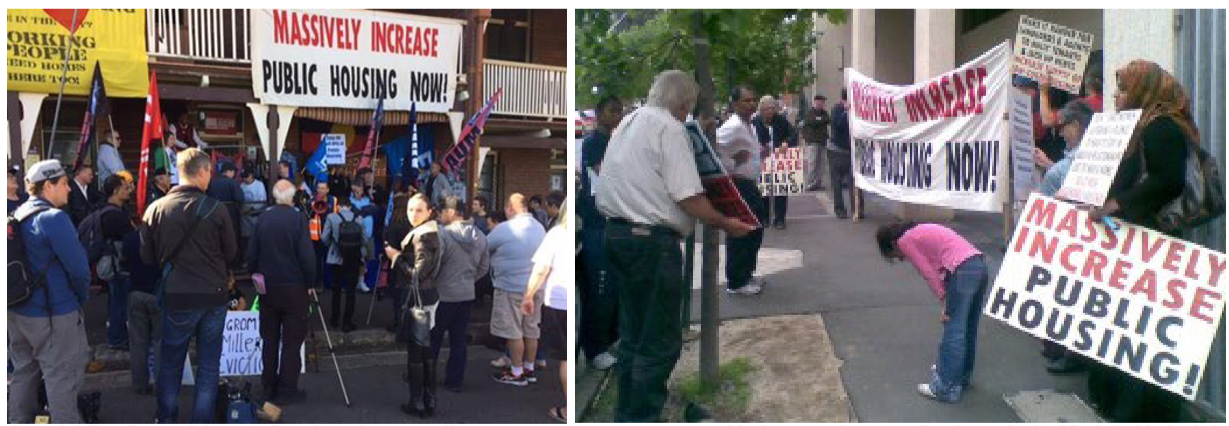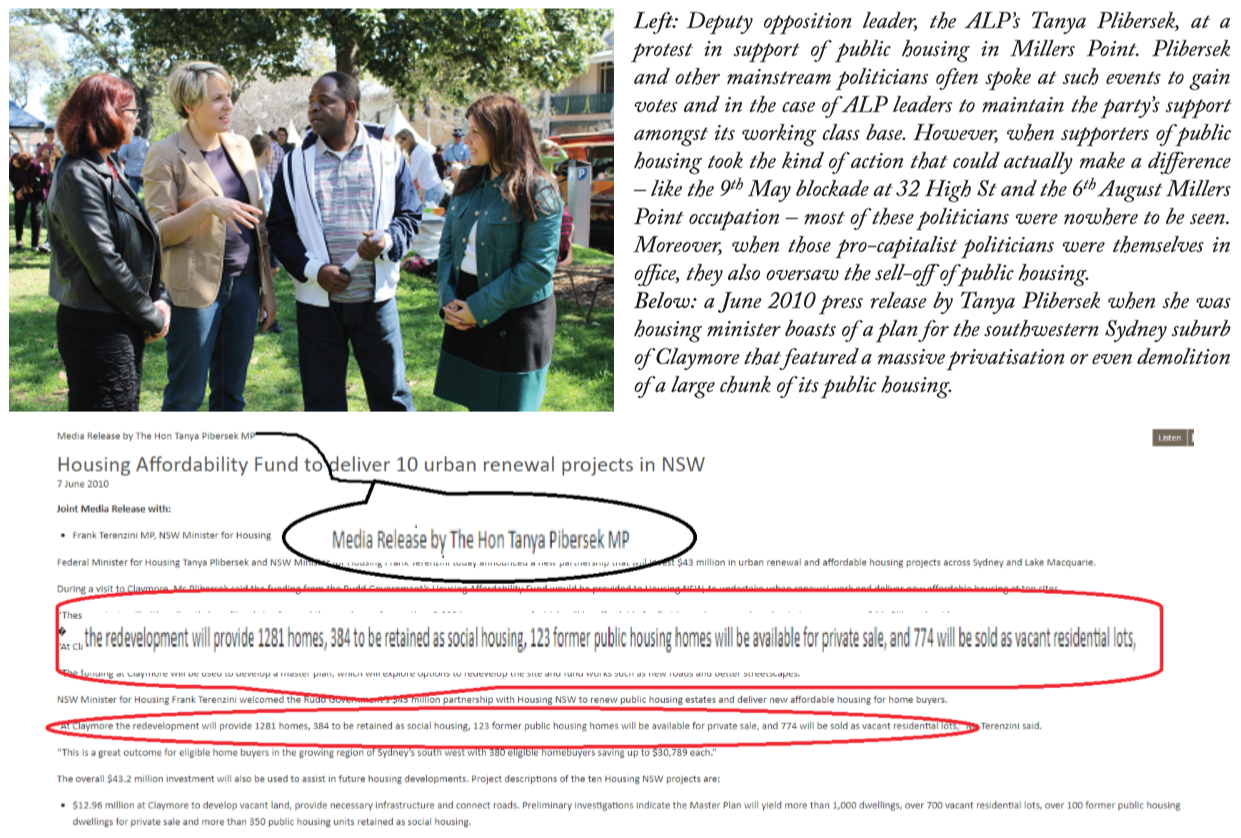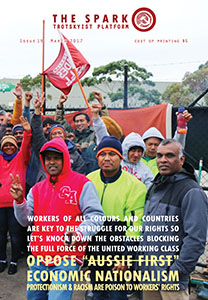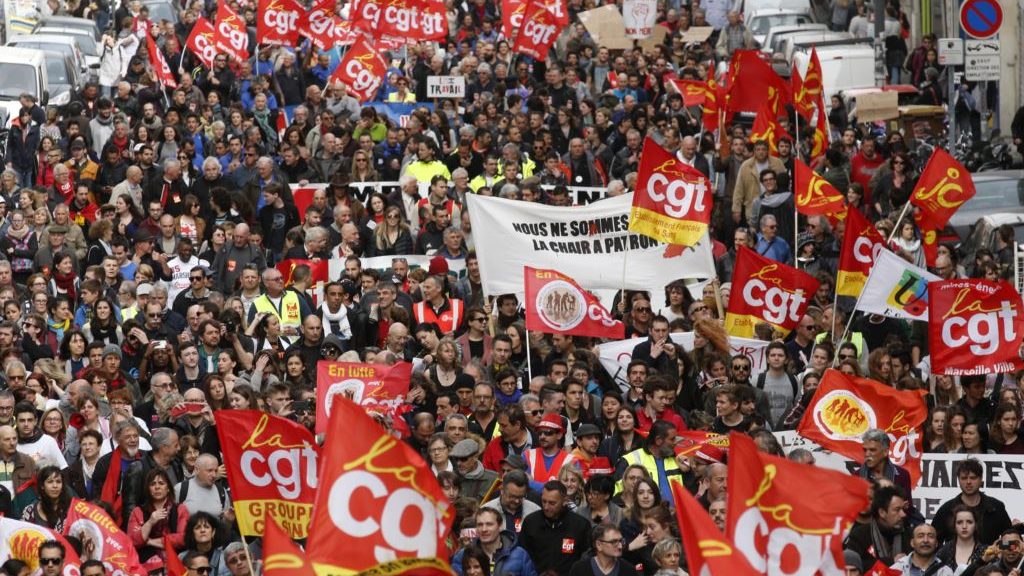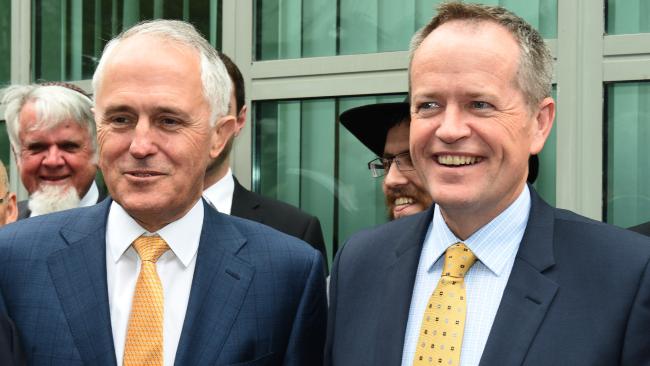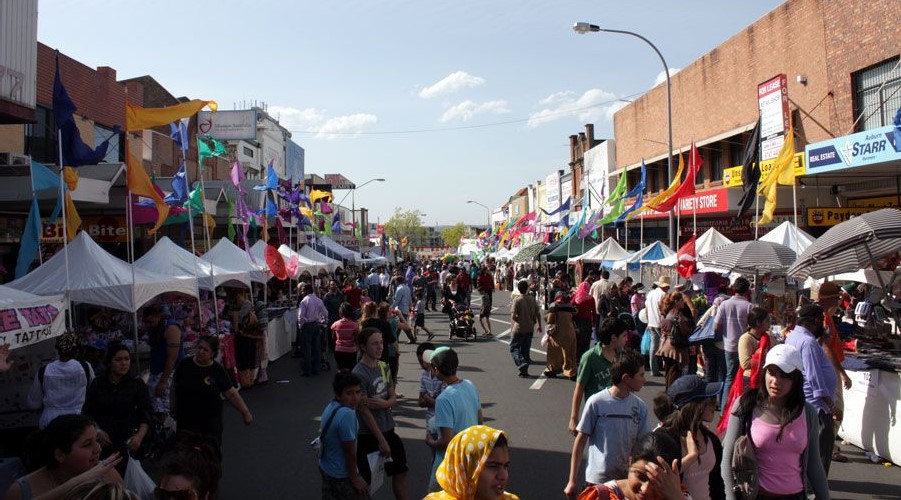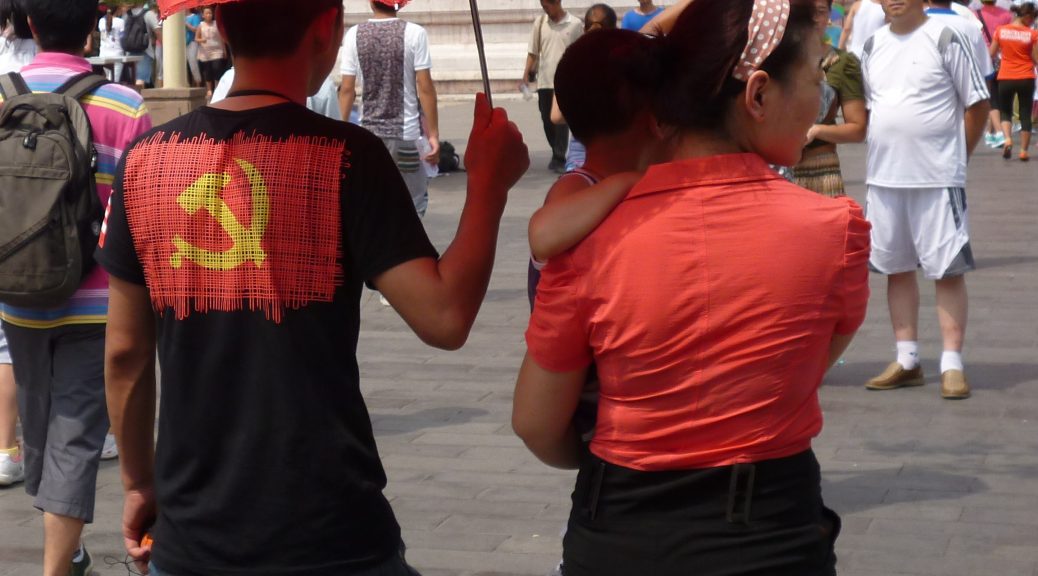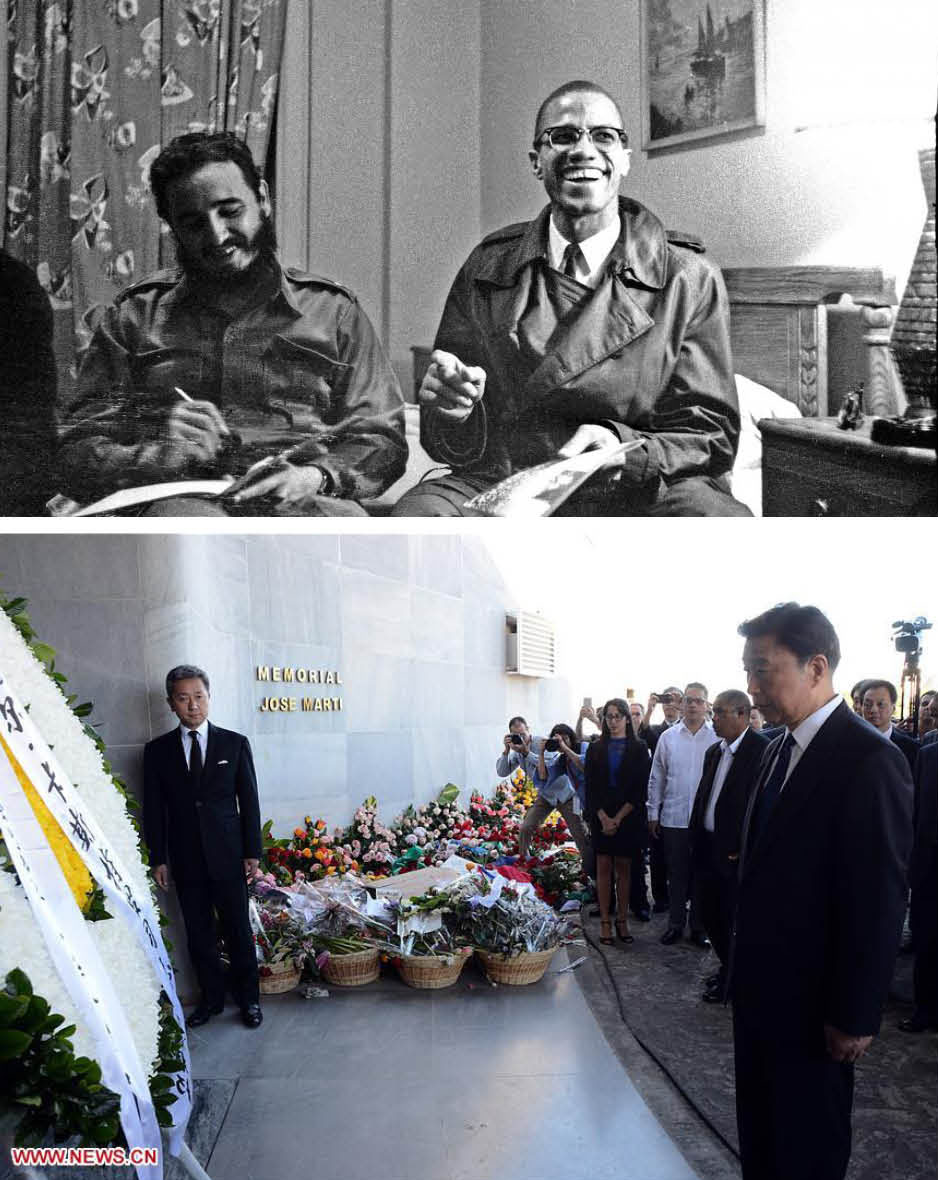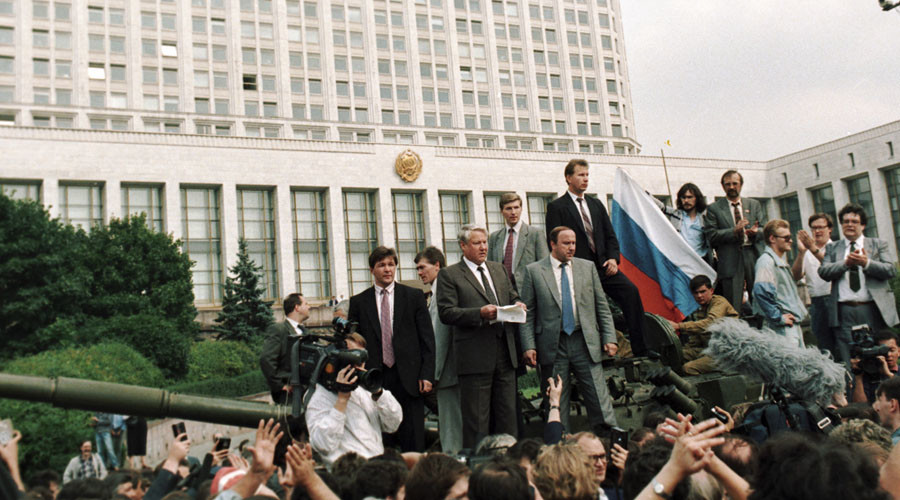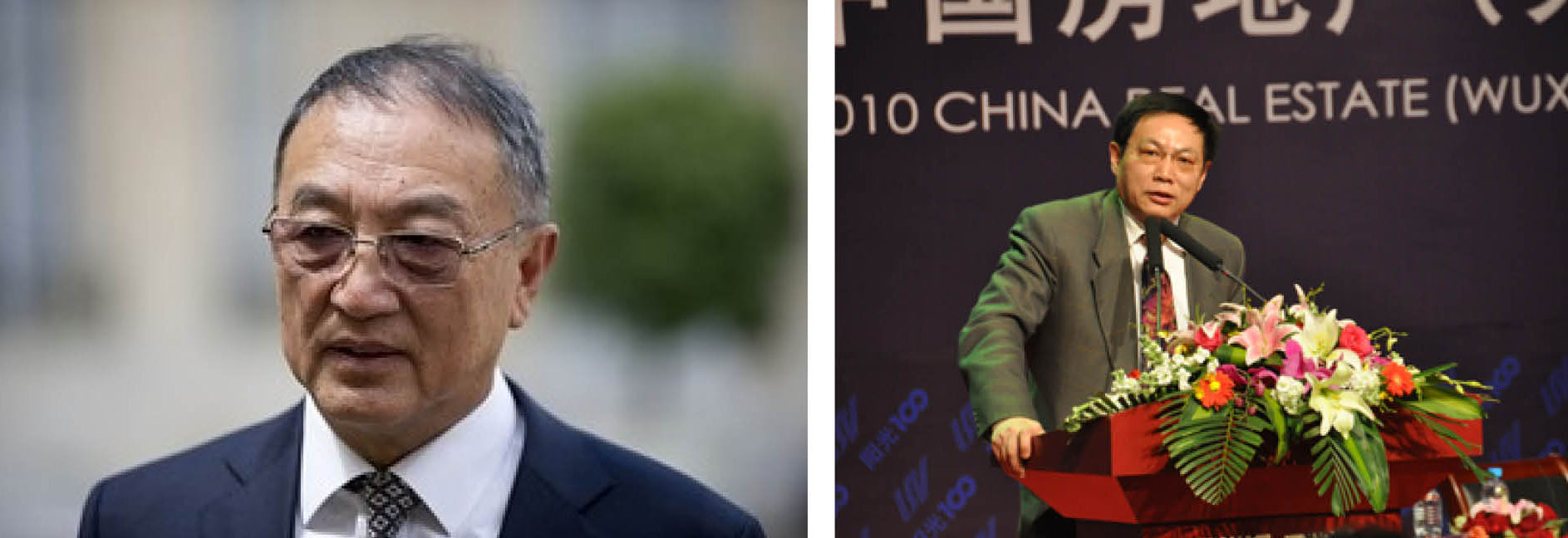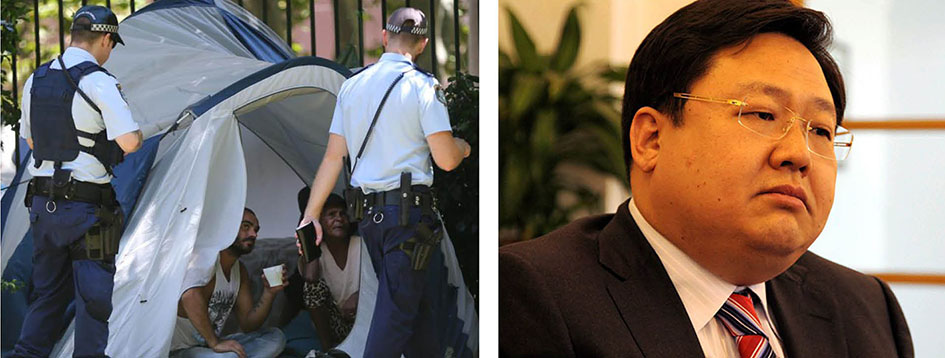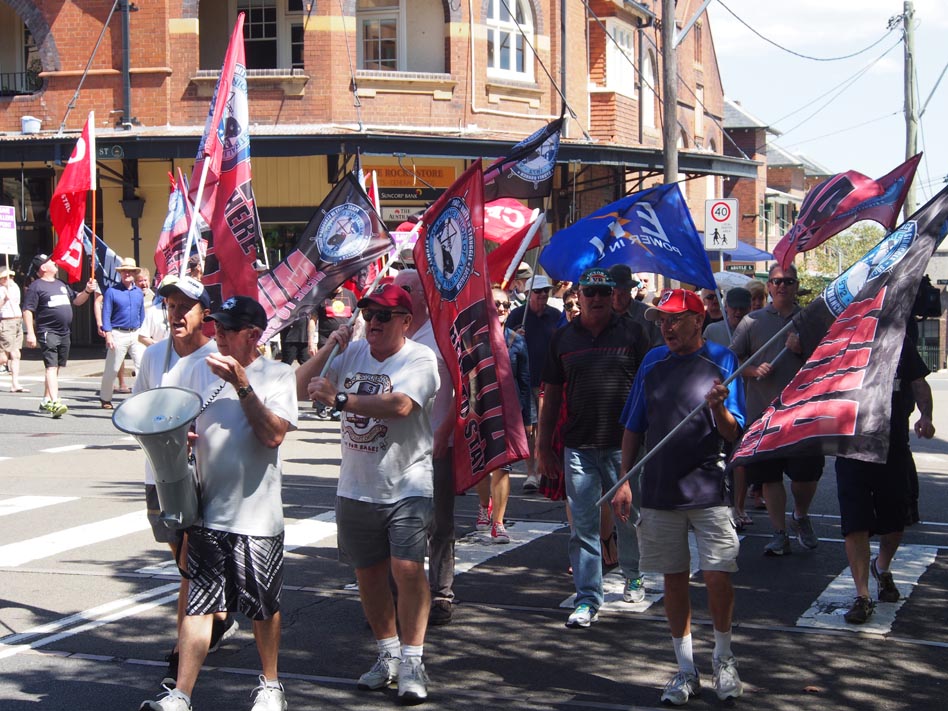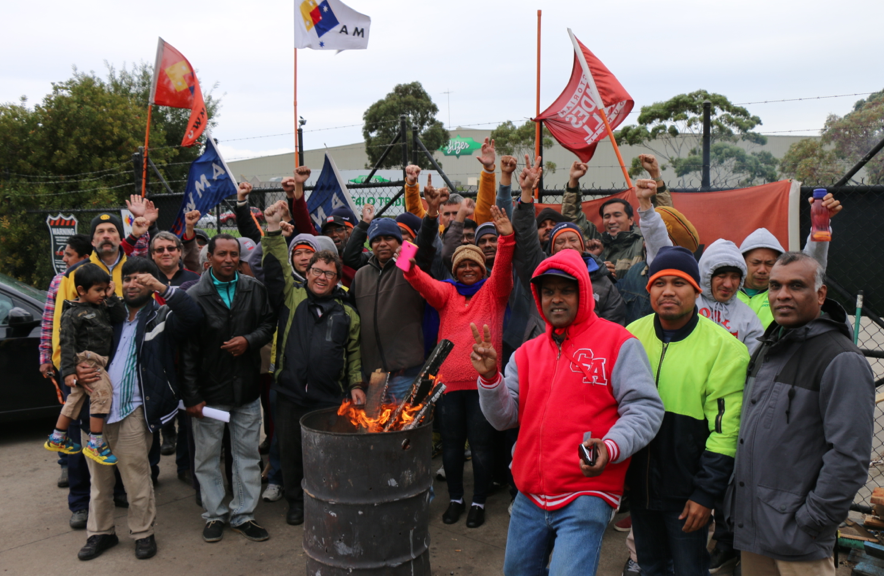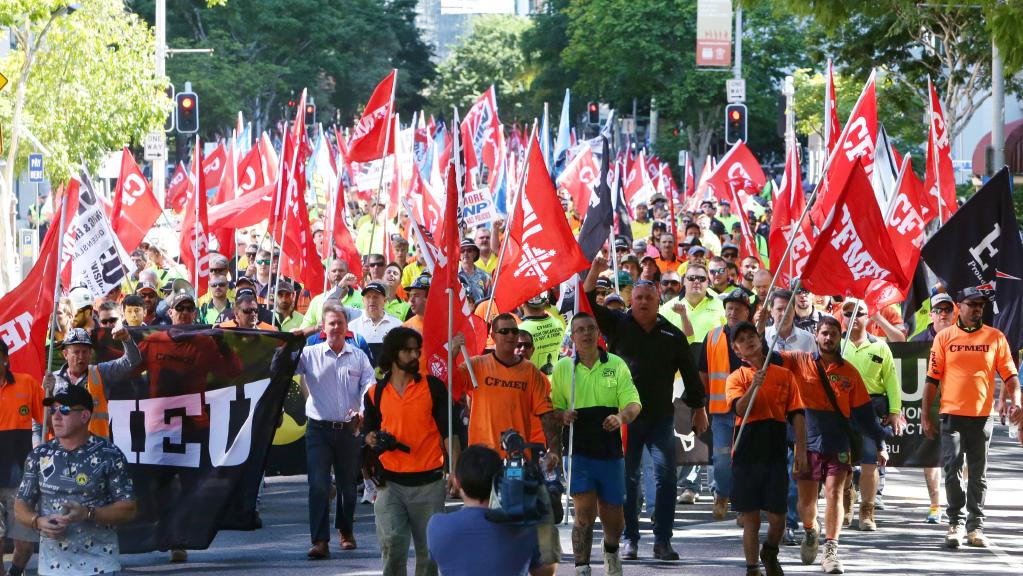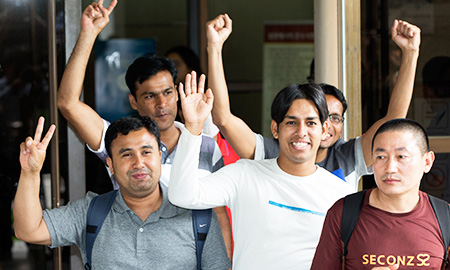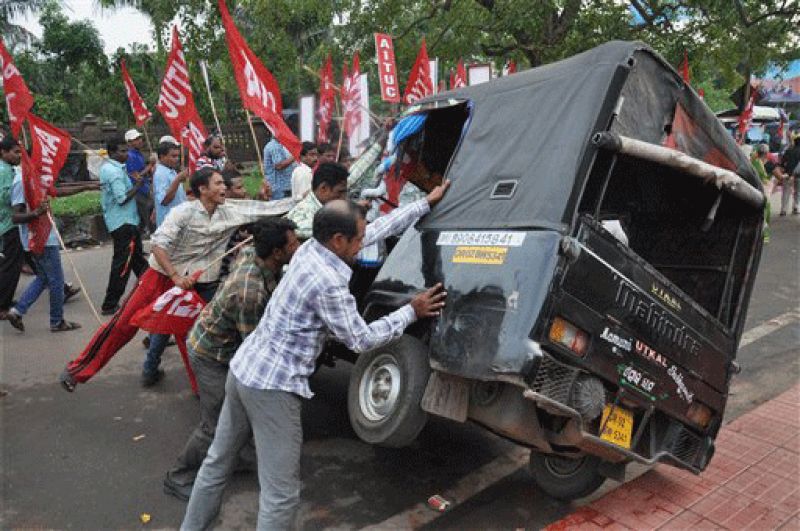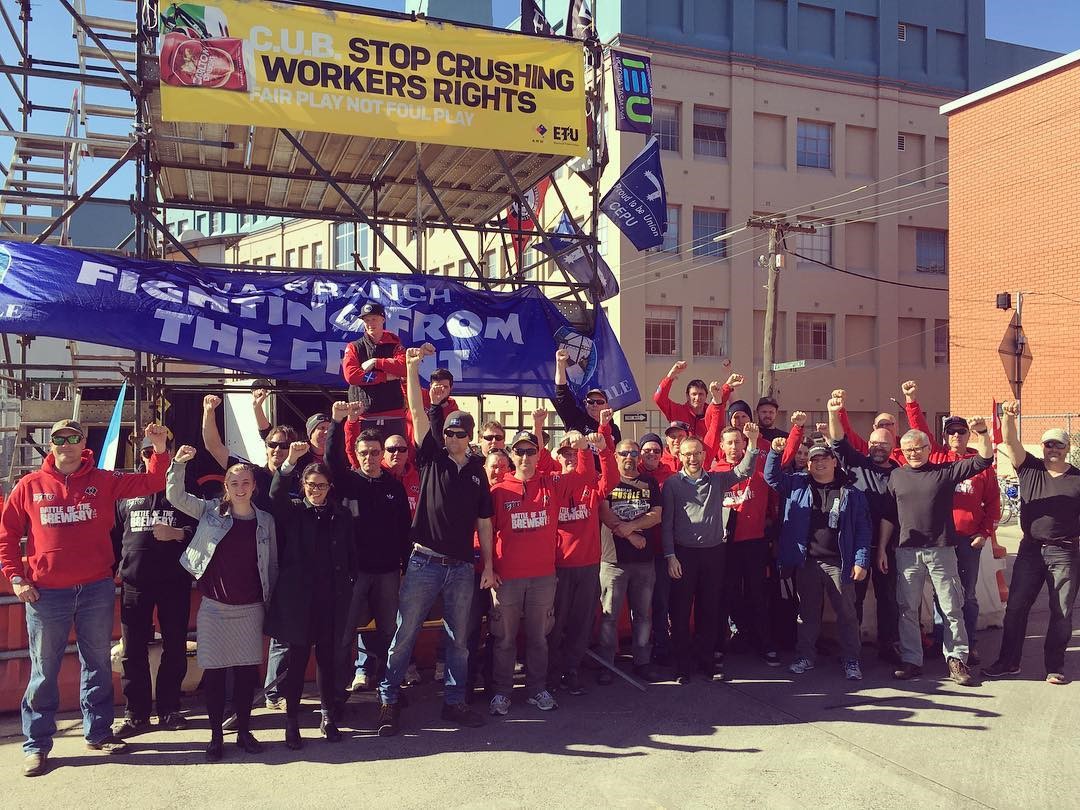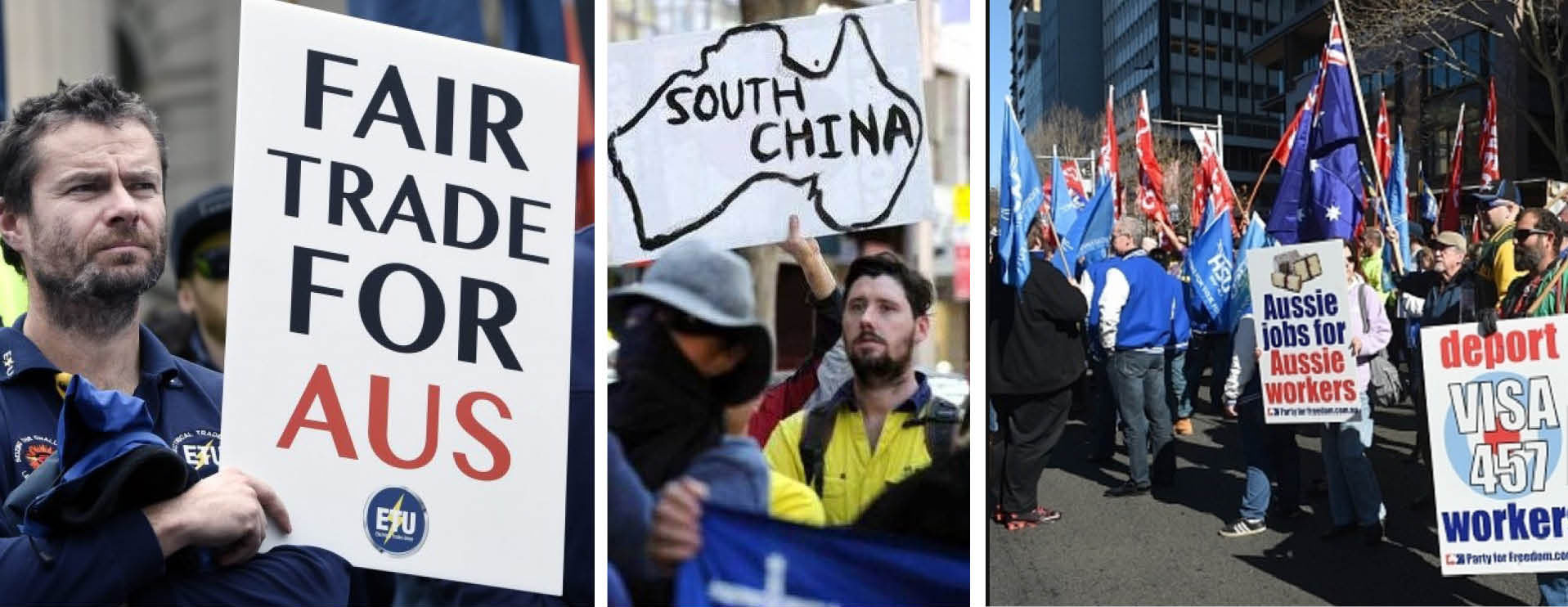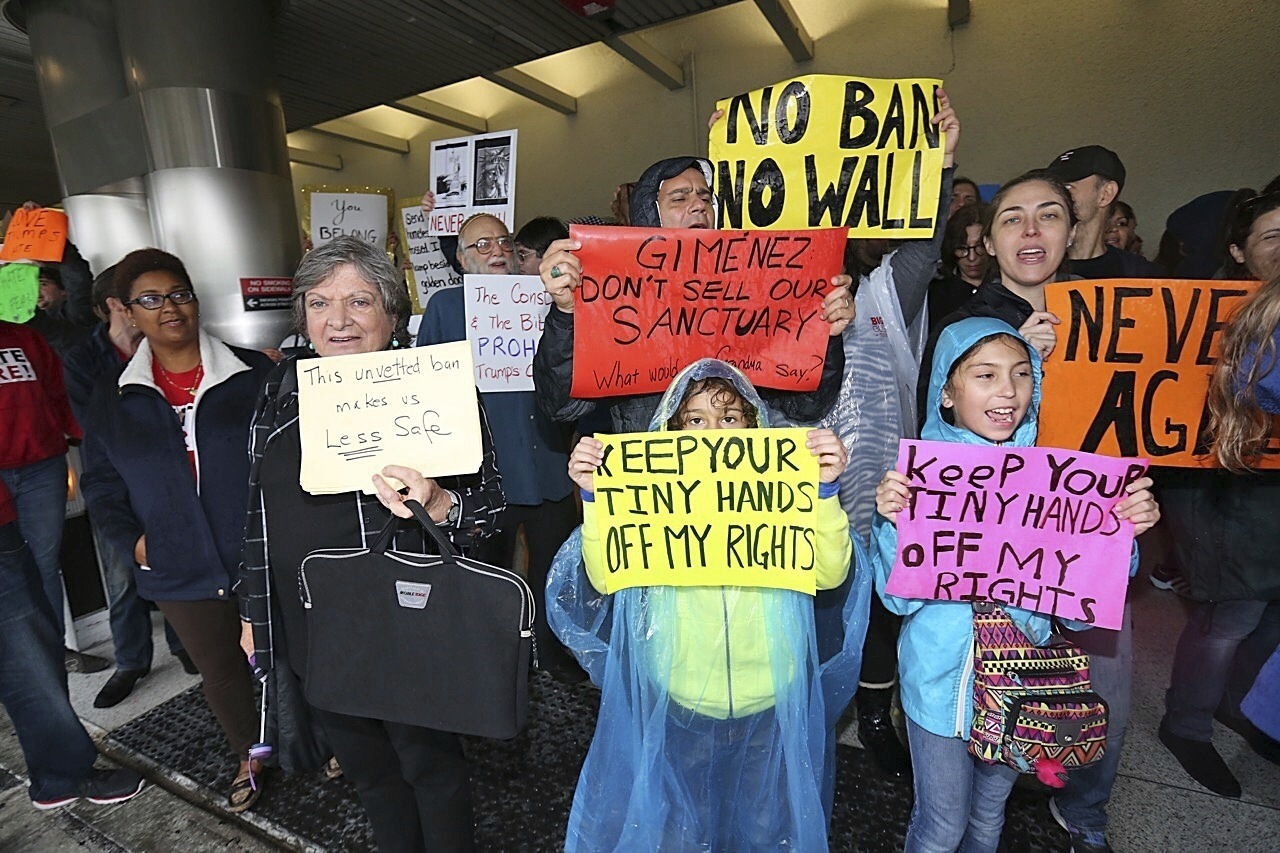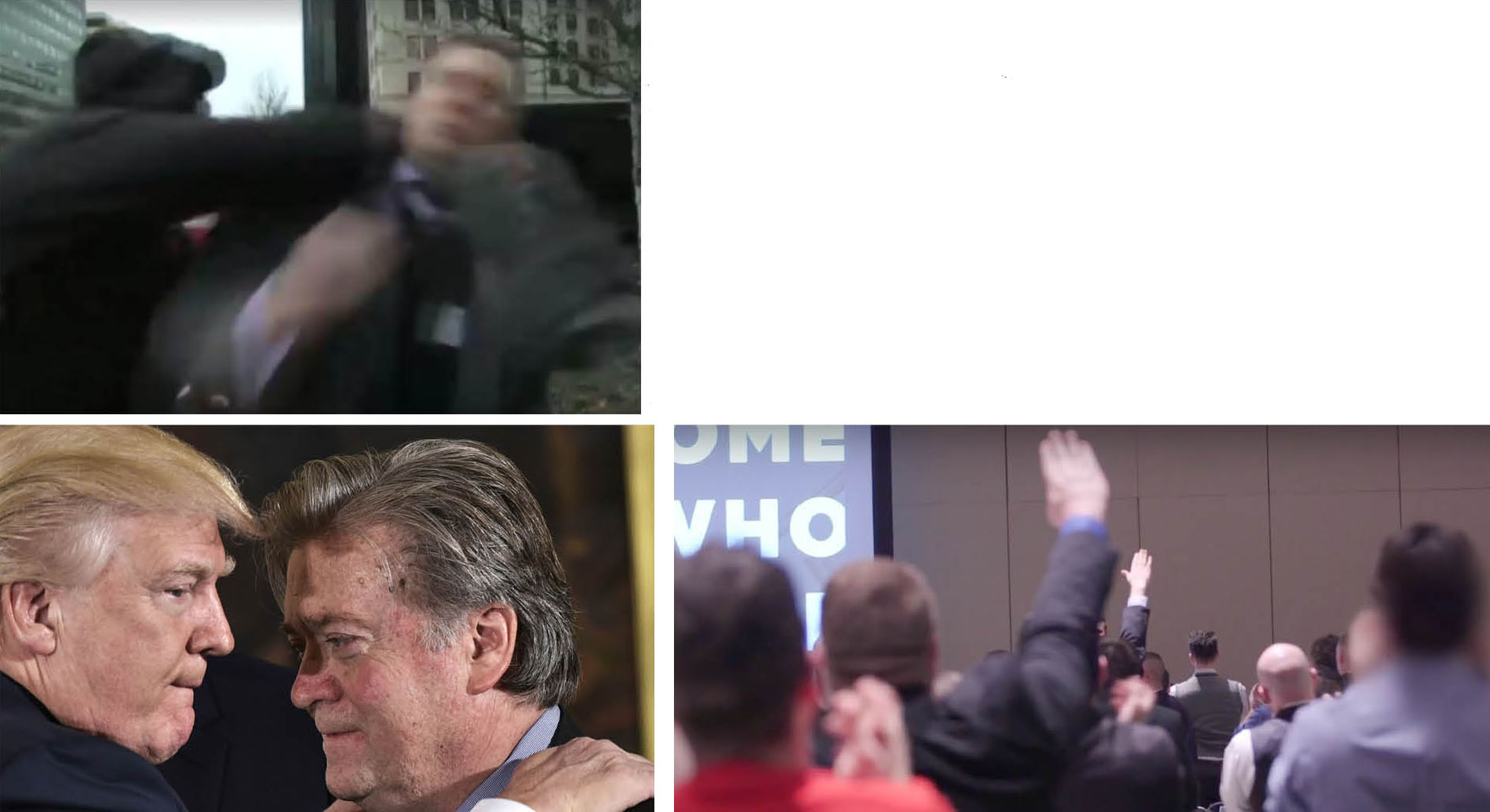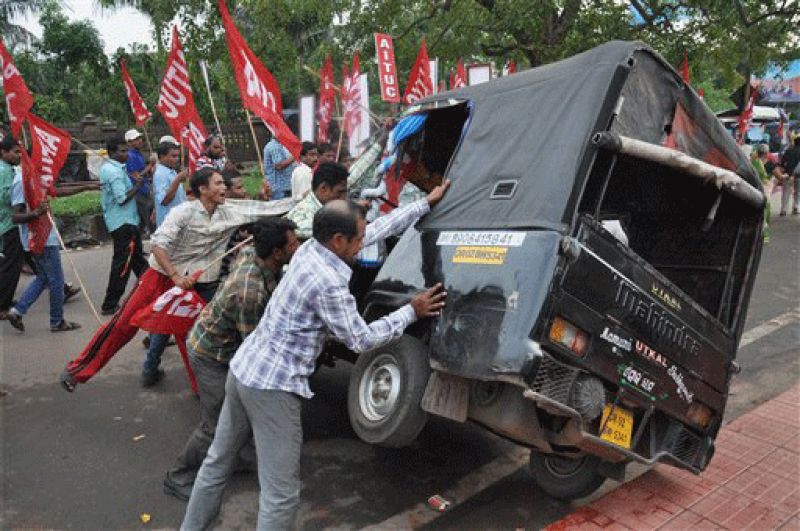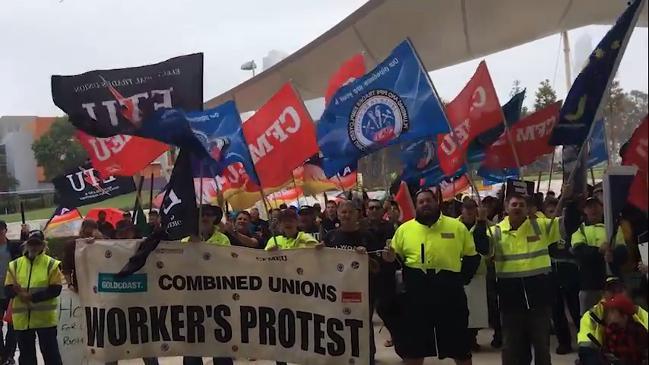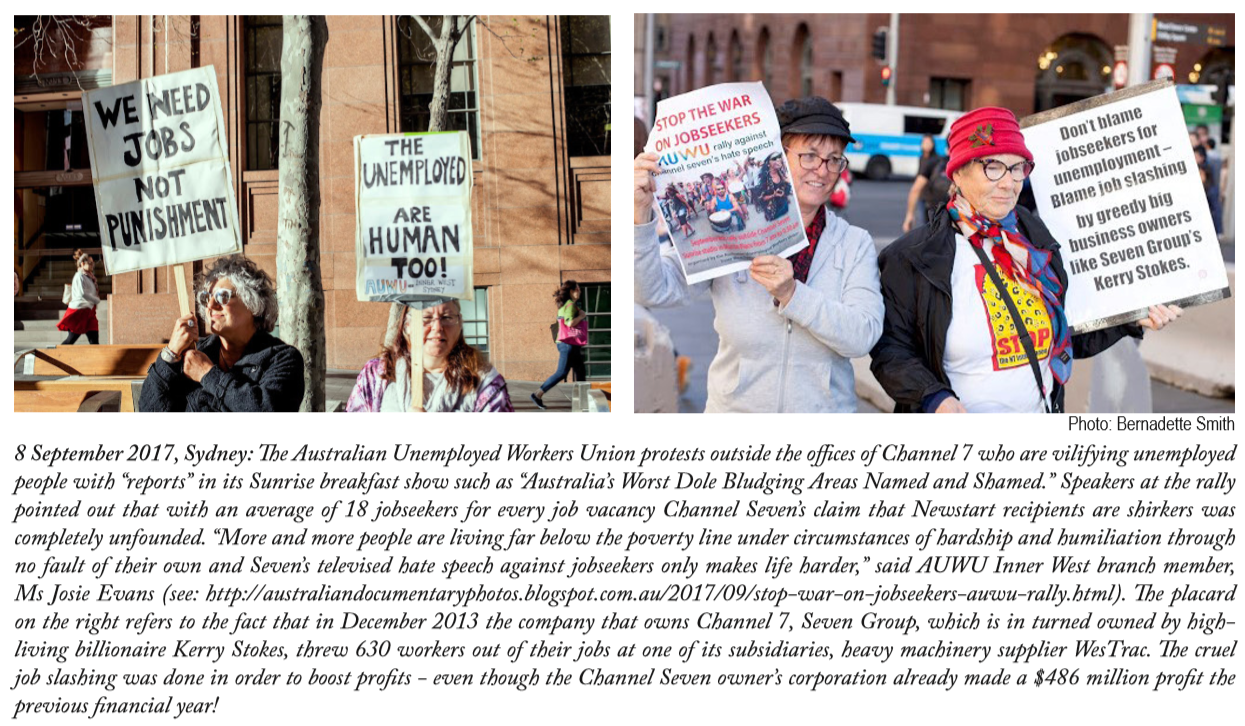What a Comparison between Red China & Capitalist Countries Says About:
Socialism vs Capitalism
15 May 2018 – When Donald Trump grabbed hold of the U.S. presidency some 15 months ago, he promised to “make America great again” through a program of racism, protectionism and tax cuts for the rich. Having slandered Mexican immigrants as “rapists” and “criminals,” a central part of his platform was and continues to be to build a “great, big wall” to keep Mexicans out. Since taking office, he has encouraged U.S. border authorities to be even more brutal in attacking would be migrants from Latin America. As neo-Nazis and other rabid white supremacists cheer him on from the sidelines, he has promised measures to keep out Muslim migrants. Indeed, Trump has already implemented executive orders that greatly restrict visits from several Muslim-majority and other non-white majority countries. Today we saw the fruits of another election promise that he has just fulfilled – to move the U.S. embassy in Israel to the expected capital of the proposed re-born Palestinian state: Jerusalem. The move was meant to be a message to the Israeli regime that they can do anything they want to the subjugated Palestinian people and the U.S. superpower will be openly behind them. The Israeli authorities certainly got the message! They have proceeded today to open fire on Palestinian protesters, massacring over 60 people so far and injuring well over a thousand people. Meanwhile, Trump’s defining legislative victory in his first year in office is a tax plan that cuts taxes for corporations and the very rich while throwing 13 million lower income people off from access to health insurance and forcing spending cuts that will hurt the working class and poor the most.
In contrast, when Xi Jinping was re-elected chairman of the Communist Party of China (CPC) at its five yearly congress last November and when the CPC outlined its vision for the future at the meeting, the agenda could not have been more different to that of America’s capitalist rulers. A central aspect of the congress was to re-assert the CPC’s drive to make sure that no person in the People’s Republic of China (PRC) is living in abject poverty by 2020. The congress’ other stated policy goals were to increase social welfare coverage, curb property speculation, reduce the income gap and reduce pollution. The overall vision presented was to make China a “modern socialist country” that is “prosperous, strong, democratic, culturally advanced, harmonious and beautiful” by 2050.
The very different agendas presented by the leaders of the U.S., the world’s most powerful capitalist country, and the PRC, the world’s most powerful socialistic country, says a lot. It says a lot about the contrast between societies where it is the capitalists who rule and those societies which are based on socialistic rule. In the next, main part of this article we present some hard facts comparing socialistic China with the capitalist countries.
However, we must note here that while capitalist rule was smashed in China through its 1949 Revolution and while a new workers state has been built with an economy in which socialistic public sector enterprises form the backbone, China is still not yet a fully socialist society. A fully socialist society is one where not only have the capitalists been deposed from power and where the working class masses have built an economy based on socialistic state-owned enterprises but one where people are actually paid according to the work that they do. Over a period of time, such a socialist society will eventually progress to a communist one. A communist society is a community where people receive payment for their work according to their needs and where all social inequalities between different layers of the population have been overcome as everyone’s manifold and varied abilities are, quite naturally, given equal value and respect without the need of a state or any kind of administrative or bureaucratic mechanism to maintain order over society from above. The leaders of the CPC do not claim that China is already communist. Indeed, they state that the PRC is still a long way from even fully accomplishing the stage of socialism. Socialism can only be reached when the capitalists have been completely vanquished and the exploitation of workers by private business owners no longer exists. However, in China, alongside the dominant public sector, a significant private sector exists where capitalists exploit workers’ labour. Of course, these capitalists in China cannot operate with the “freedom” that they do in countries where it is the capitalists that have state power. In the PRC it is the toilers who, even if in a deformed way, through the CPC, hold social power. Hence we use the description “socialistic China.” This description alludes to the fact that in a sense China is in a transition from capitalism towards socialism. Yet, this is only in a sense. For although China has definitely moved in the direction of socialism since 1949, this movement has not always been in this forward direction over the last 68 years. What is more, there is no guarantee that China will progress all the way to socialism instead of falling back into the abyss of capitalism like the former USSR eventually, sadly, did.
For the private sector bosses that exist in China are not satisfied with their present lot where they are allowed to make capitalist profits in some industries but where their rights to make such profits are not only restricted but are always somewhat tenuous. So these capitalists – and the much larger layer of managers, lawyers, economists and journalists who cosy up to them – are constantly pressing for greater “rights” for capitalist exploiters. Most significantly, so too are elements within the right-wing of the CPC and the government – the sections of the ruling bureaucracy who are closest to the capitalists. Many in this entire pro-private sector layer are actually hell-bent on outright capitalist counterrevolution. However, given the current balance of forces, they often dare not openly promote such an agenda. Instead, they lobby for right-wing reforms that would increase the economic clout and social weight of private sector capitalists and, hence, their ability to push for outright capitalist restoration in the future. Batting in the same direction are the capitalist powers around the globe who use military, political and diplomatic pressure to batter socialistic rule in China from the outside. Inevitably then the threat of capitalist counterrevolution in China is all too real.
The PRC’s course towards socialism will only be assured once capitalist rule is overthrown in the most powerful capitalist countries around the world. That would relieve the military pressure bearing down upon the PRC and remove the main source of backing for the counterrevolutionary “dissidents” and NGOs operating within China. The deposing of capitalist rule in the West and Japan would also allow China to get access to the generally more advanced technology of the richer countries without having to allow excessive investment into China from capitalist corporations from these countries. Marx and Lenin always insisted that socialism can only be securely built on the basis of a productivity of labour higher than that of capitalism. Once the working class have secured state power in the most technologically advanced countries through revolutionary uprisings this will become possible: not only in these countries but in China and, indeed, the rest of the world too.
Given that the richest countries in the world currently remain under capitalist rule, it is not yet possible for the PRC or the other four workers states – Vietnam, Cuba, the DPRK (North Korea) and Laos – to progress all the way to complete socialism. Indeed, for this reason
a fully socialist society – and therefore a communist one – has not yet existed in this world. Nevertheless, the 1949 Chinese Revolution, like the October 1917 Russian Revolution, the Cuban Revolution and the Vietnamese Revolution, represents a terrific victory for the toilers and downtrodden of the world. They have not yet been able to produce fully socialist societies but they have, nevertheless, made massive leaps in the direction of socialism. By comparing these socialistic societies with capitalist ones we can get some sense of how very different a future socialist world will be from the current capitalist dominated one that we live in.
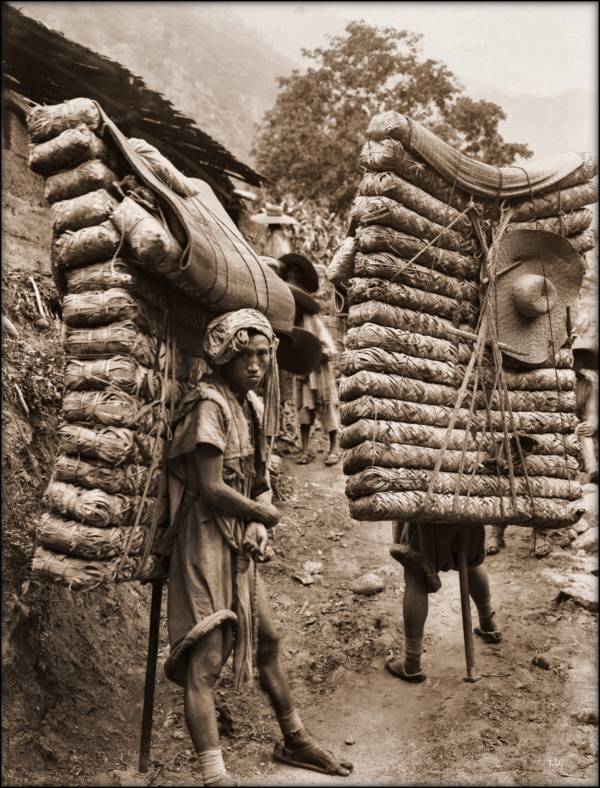
When we do a comparison between China and the capitalist countries in terms of indicators of socioeconomic structure, social progress and social ills, it will become obvious just how different the PRC is to actual capitalist countries. However, we cannot make such a comparison between China and the imperialist, rich capitalist countries like the U.S. and Australia. For at the time that China’s heroic toiling masses pulled her up onto a socialistic path in 1949, China was in a vastly inferior position to countries like the U.S.A and Australia. Prior to its 1949 Revolution, China had suffered over one hundred years of humiliation at the hands of Western and Japanese imperialism. After the British imperialist drug pushers crushed China’s resistance to their “right” to turn half that country’s people into opium addicts, the British forced China to cede its strategically located port city, Hong Kong, in the 1842 Treaty of Nanjing that followed the Opium War. This “treaty” also opened the way for the British to be granted “extraterritoriality” – meaning that its citizens residing in China were exempted from being subjected to Chinese law! Subsequent acts of imperialist aggression by Britain and other colonial powers forced China to later also concede extraterritoriality to the U.S., France, Netherlands, Italy, Germany, pre-1917 capitalist Russia and Japan. All this bullying and unequal treaties enabled the colonial powers to bleed China dry by dominating its markets and by brutally exploiting its workers in “concession” zones in key cities like Shanghai and Guangzhou (then called Canton). In contrast, colonial powers like Britain, the U.S.A and Australia grew fat from exploiting not only China but most of the rest of Asia, Africa, the Middle East, the South Pacific and South America. Meanwhile, U.S. capital was partly amassed through slave labour exploitation of black people. Australia’s crucial agricultural sector was, for its part, built on the back of severe exploitation of Aboriginal workers who were largely denied access to their own wages as well as semi-slave exploitation of kidnapped Melanesian and Polynesian labourers from Pacific lands like Vanuatu, Papua New Guinea and the Solomon Islands.
By the time of the foundation of the revolutionary PRC in 1949, the richer capitalist countries like the U.S. and Australia were in a far different position to that of China. At that time, Australia had an average per capita income nearly 17 times larger than that of China. The U.S. for its part had a per capita income over 21 times higher than China’s. Needless to say, given their vastly different starting points in 1949, it would be extremely unreasonable to make a comparison of indicators of social well-being between China and the richer capitalist powers. This is doubly so when it comes to any comparison between China and Australia, given that Australia has 50 times as much land per person as does China; and has much, much greater land, energy, mineral and water resources per person than China. To be sure, since the Chinese toilers pulled the country onto a socialistic path in 1949, China has made a lot of headway in catching up to the richest of the capitalist countries. While its income per person is still several times below that of the most economically advanced of the capitalist countries it has almost caught up in areas like literacy and life expectancy and even surged ahead in some areas like public transport and renewable energy.
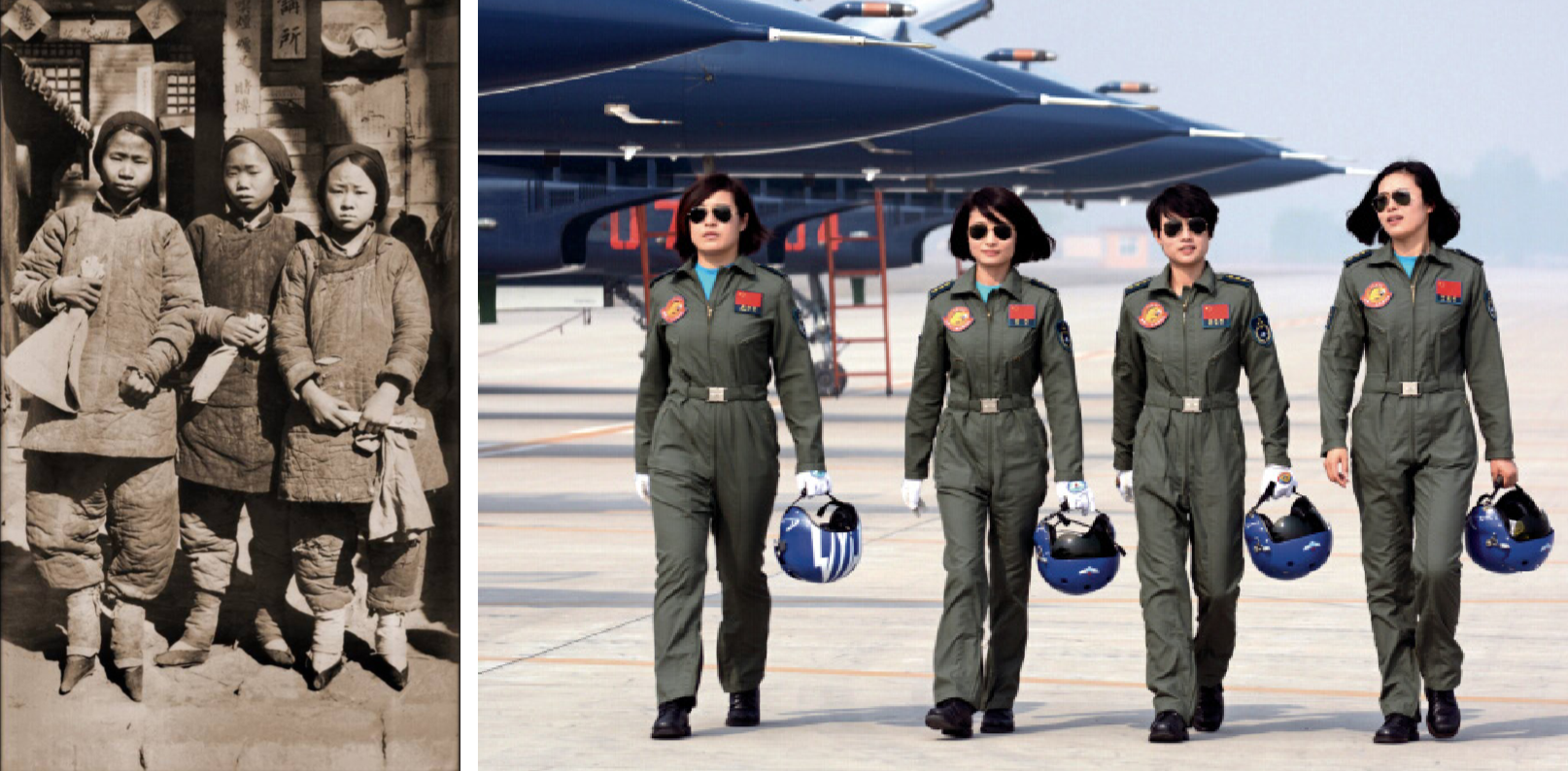
To fairly compare China with a capitalist country we need to compare it with a capitalist country that is not only similarly populous but one that at the time that China was launched onto a socialistic path was at a similar level of development. We find such a capitalist country in India. Although the Indian working class, poor peasants and working class women have waged brave struggles against the greedy capitalists and rural landlords that subjugate them, thus far the Indian exploiting classes have managed to hold on to power. India is yet to be uplifted by its own anti-capitalist revolution.
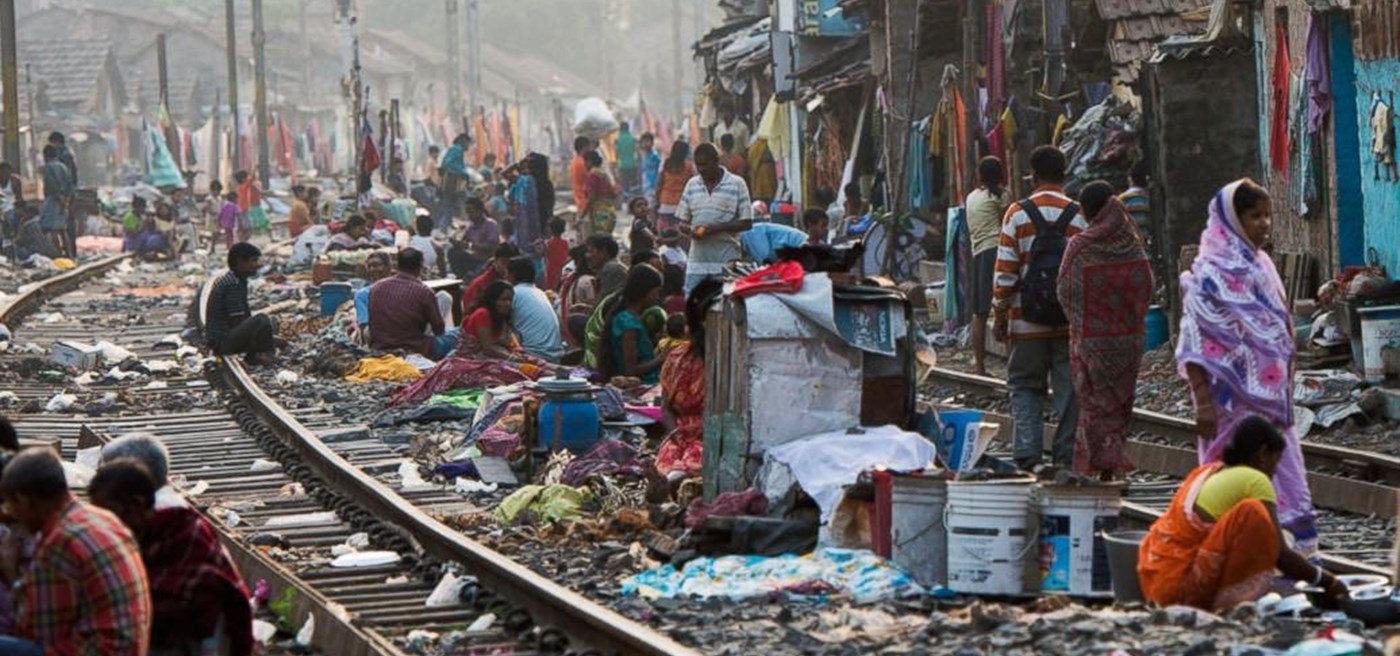
Like China, India had been raped by colonialism. India gained its formal independence from Britain in 1947, while China was ripped free from neocolonial domination through its 1949 Revolution. At this time, India was actually in a far more favourable position than China. Not only was it not burdened with the international isolation that came from being a socialistic country but its per capita income was over 87% higher than that of China’s (see figures from Maddison Project Database 2018, Groningen Growth and Development Centre, University of Groningen, https://www.rug.nl/ggdc/historicaldevelopment/maddison/releases/maddison-project-database-2018). However, by the time that China first announced pro-market reforms in the late 1970s, 30 years of socialistic rule had enabled her to catch up with and overtake (by over 45%) India in terms of per capita income and shoot way past India in areas like health care and education. Today, after nearly 70 years of socialistic development versus continued capitalist rule in India, China is way ahead by every measure of social progress. This is evident by looking at Table 1 below – a comparison which uses figures from largely UN or Western sources. The indicators which especially show how much more progressive the socialistic society in China is over the capitalist one in India are those related to the status of women and to poverty levels. As the table shows, China has at least a ten times lower proportion of people in poverty than India. Furthermore, the figures used in this comparison actually underestimates this difference since the figures for India are quite current while those for China are many years old – and since then China has made huge advances in uplifting people from poverty.
When the working class of India unite all that country’s oppressed – from impoverished landless tenant farmers, to low-caste people, to the Muslim religious minority, to subjugated nationalities like the Kashmiris to the downtrodden women of India – to make a socialist revolution, then the Indian masses will also rapidly pull themselves out of poverty and subjugation.
Socialism Works!
What Table 1 above shows is not only how much socialistic rule has enabled the PRC to improve the lives of its people but also how different her economic structure is compared to a capitalist, ex-colonial country like India. Thus, in socialistic China all urban land is publicly owned and all rural land is owned by collectives of the rural community. Although China’s post 1978 reforms greatly weakened the practice of agricultural production through collectives by the granting of 30 year “use rights” to individual farmers, the continued collective ownership of agricultural land has protected farmers from the return of landlordism. By contrast, most agricultural land in India remains owned by wealthy landlords and capitalist plantation owners, resulting in a life of terrible hardship for poor tenant farmers and agricultural labourers.
Most notably, Table 1 shows the dominant position of state-owned enterprises in China. Actually, if anything, the figures tend to underestimate the dominance of public ownership amongst the PRC’s biggest companies. Over the last few years several of China’s biggest state corporations have merged. This has resulted in a smaller number of state-owned companies but ones of even more gigantic size. In the PRC, publicly-owned enterprises dominate all the strategic economic sectors including steel, oil/ gas, power, banking, insurance, aluminium, mining, telecommunications, automotive, aviation, rail, shipping, ports, shipbuilding, aircraft manufacturing, train manufacturing, defence, space, robotics, high-end computing, wind turbines, electronics components, media, cinema, publishing, building materials, infrastructure construction and computer chip manufacturing. Even many consumer sectors have socialistically-owned enterprises playing a key role in them. Thus, China’s biggest real estate developer is state-owned Vanke, its main TV manufacturers and exporters are state-owned Hisense and TCL, its biggest air-conditioner producer is state-owned Gree, its huge whitegoods manufacturer is collectively-owned Haier, its biggest liquor producer is state-owned Kweichow Moutai, its largest food processor, manufacturer and trader is state-owned COFCO, its biggest mobile phone manufacturer is majority state-owned BBK Electronics (producer of the Vivo, OPPO and OnePlus brands) and state-owned enterprises even play key roles in hotels, tourism, department stores and supermarkets. Unfortunately, there are some big capitalist players present in areas like retail, property, internet, e-commerce and light manufacturing. Yet even some of China’s most well-known “private” brands like computer producer, Lenovo, are actually state-controlled and have state-owned companies as their biggest shareholders. Meanwhile, another of the most prominent “private” Chinese brands, Huawei, is avowedly employee-owned with many believing that this company headed by a former Peoples Liberation Army officer is actually a state corporation hiding its true ownership to avoid facing restrictions from Western governments.
In contrast, state-owned enterprises play a much, much smaller role in capitalist India than they do in Red China. Nevertheless, for a capitalist country, India has a relatively large state sector. However, in a capitalist society, such state-owned companies are not socialistic enterprises or even a step towards this. In a capitalist country, a state-owned company is an enterprise owned by a state that exists to serve the big end of town capitalists. In particular, state-owned enterprises in a country like India serve to ensure that sectors necessary for the overall functioning of the economy are adequately covered so that the capitalist private business owners can make huge profits elsewhere or through corrupt association with the supposedly “public sector” firms. In contrast, in a socialistic country like China, the state firms are administered by a workers state. They are not there to assist the capitalists to make profits but to form the backbone of the entire economy and to dominate the economy’s most lucrative sectors.
Rather than operating purely according to the profit motive, state-owned enterprises in socialistic China are often guided to meet broader social goals including boosting of employment, training of skilled workers, creation of opportunities for the disabled and pioneering development of new industries deemed to be important for the whole society and her economy. Most importantly, these socialistic state enterprises have played the decisive role in China’s poverty alleviation drive. Acting contrary to the capitalist practice of choosing investments according to which venture will bring the highest rate of profit, China’s state-owned enterprises have been directed to build up industries and create jobs in the most poverty-stricken parts of China. This has played a key role in enabling the PRC to lift nearly 70 million people out of poverty (as defined by its poverty line based on the World Bank definition of abject poverty) in just the last five years. As far as low-income people are concerned, socialism simply works! This is the case even when it is applied in a state where its practice is deformed and uneven.
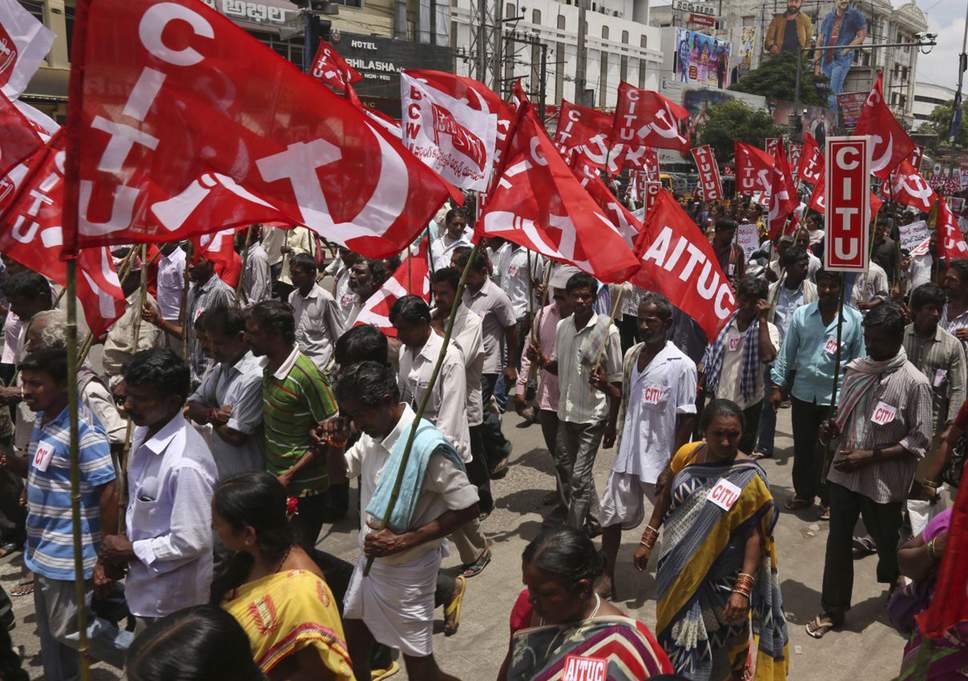
Apologists for capitalism will, of course, try to avoid dealing with a comparison between socialistic China and capitalist India by insisting that China be compared with the wealthiest of the large capitalist countries. They would say that since China is the most powerful of the socialistic countries and the U.S. is the most powerful of the capitalist countries, it is the U.S. that China should be compared with. No doubt they would also argue that since China is the most populous of the socialistic countries it should be compared to the most populous of the richer, “successful” capitalist countries: which is the U.S.A again. As we have noted earlier, given China’s vastly inferior position to the U.S. at the time that its revolutionary masses pulled it up onto the socialistic path in 1949, such a comparison would be very unfair and misleading. However, while we cannot compare China and the U.S. in areas directly affected by the level of economic development where the imperialist U.S.A’s massively advantageous position in 1949 allows it to still retain an edge, we can compare the two countries in areas like economic structure, social realities, social problems and government policy direction. Table 2 below shows that comparison.
In Table 2 we also compare socialistic China with another populous capitalist country in addition to the U.S.: Russia. We have chosen to include Russia in this comparison partly because she is the world’s number two capitalist military power (indeed, Russia is the world’s number two military power full stop, second only to the U.S. and not too far behind in this regard). Much more significantly, Russia is a capitalist power that is not part of the NATO fold and currently not at all a U.S. ally – indeed, right now Russia is being ostracised by most Western powers. Furthermore, we have chosen to include Russia in this comparison partly because the particular structure of capitalism in Russia is somewhat different to that in the U.S. Russia has, compared to the U.S., a relatively large state sector. As Russian revolutionary Leon Trotsky noted during Soviet times: if in the tragic case that capitalist counterrevolutionaries were to destroy the Soviet workers state, the new counterrevolutionary regime would maintain a large, nationalised sector for a long time. Although the 1990s “shock therapy” saw massive privatisation in, the then, newly capitalist Russia and although the Putin government is today embarking on a renewed privatisation program, Russia’s state sector remains larger than that in, say, the U.S.A or Australia. A look at Tables 1 and 2 show that capitalist Russia’s state sector has approximately the same relative size as that in capitalist India. This is, of course, still much smaller than the relative size of the public sector in the socialistic PRC. Furthermore, as in India, the state-owned enterprises in Russia are administered by a state serving the interests of the capitalists, a state notorious for siphoning off the profits and assets of “public sector” enterprises to crony capitalists.
Table 2 below illustrates the proverbial “Great Wall” that separates socialistic China from both the U.S. and Russia when it comes to economic structure, distribution of economic power and state policy direction. The table shows that despite China having a lower per capita income, its society is far freer from social ills like violent racism, suicide and murder than either capitalist America or capitalist Russia. Furthermore, the PRC government’s policy direction is far more favourable to low-income people. Table 2 also proves that the argument that “at least people have more freedom” under capitalism is bogus. A resident of the U.S.A is nearly six times more likely to be imprisoned than a resident of China, while a resident of Russia is more than three and a half times as likely to be incarcerated as a resident of the PRC. Moreover, a person living in the leading country of the “free world”, the United States of America, is 136 times more likely to be killed by a police officer than a person living in China!
The Fight For Socialism and the 1917 Russian and 1949 Chinese Revolutions
In summary what Table 2 shows is that whether we are comparing Red China with the U.S. or with a current capitalist rival to the U.S.A like Russia, whether we are comparing the socialistic giant with a capitalist country with a relatively small state sector or a capitalist country with a relatively large state sector, as far as the interests of the masses are concerned socialistic rule is far better and more humane than capitalist rule. And if we make the fair comparison between countries that were at similar levels of development at the time that they diverged in political direction – which we do in Table 1 where we compare India and China – we see that socialistic rule – even if in a deformed form – delivers a far better life for the working class masses than does capitalism.
If a socialistic state burdened by excessive capitalist intrusion and bureaucratic deformations can achieve so much then it indicates the tremendous benefits that healthy workers states administered by democratic workers councils will bring in the future. However, this poses a question: Why is the workers state in China – as great as its achievements have been – bureaucratically deformed and corroded today by a significant capitalist sector? To begin to answer this question we need to go back to China’s heroic 1949 revolution and examine how it was different to the October 1917 Russian Revolution. There is an important difference between the October 1917 Revolution and the other great anti-capitalist revolutions that have been accomplished – including the 1949 Chinese Revolution. The social force that spearheaded the 1917 Russian Revolution was the urban working class which led the other oppressed masses of the cities and rural areas. These workers were brought together by collective labour in large workplaces and by the reality that any defence of their interests against their exploiting bosses could only come through their collective efforts. To be sure, it still took the tireless efforts of a determined communist party to solidify the workers together. However, the production and economic interest imperatives pulling workers together made it possible to unite this revolutionary class through its own organizations, the factory committees and soviets, and it was these elected workers organizations that exercised power in a truly sovereign way immediately after the 1917 Revolution. In contrast, the anti-capitalist revolutions in China, Vietnam and Cuba were spearheaded by poor tenant farmers and rural workers. Like the urban working class of Russia in 1917, these toilers had to fight with great heroism and self-sacrifice to achieve these tremendous revolutionary victories for the downtrodden. However, unlike the urban working class, the tenant farmers worked as individuals (albeit ones forced to hand over a big chunk of their produce to their landlords) operating separately from and even in direct market competition with each other. This mode of production inevitably had its reflection in the way the farmers related to each other. Thus, at times the tenant farmers had to be held together somewhat artificially from above by the more politically aware communist cadres. During the revolutionary wars, the burning necessity to defeat the landlords kept the poor farmers together but afterwards, especially, party cadres were required to smother centrifugal tendencies that would otherwise have torn the unity of the farmers apart. As a result, unfortunately, the workers states produced by these revolutions were not based on truly democratic mass organisations of the toilers but on organisations in which the party leadership had to bureaucratically hold things together from above. In such a structure, especially once the fervent idealism of the actual revolution inevitably dissipated, those exerting bureaucratic control inevitably secured privileges for themselves. Their privileged position, in turn, had a conservativising influence upon them. In China, the ruling bureaucracy instituted pro-market reforms from the late 1970s onwards that, while they have, to a degree, stimulated economic growth, have increased inequality and dangerously allowed the capitalist private sector to gain greater influence.
Today, for China and the remaining workers states to progress further along the path to socialism, they need not only the assistance of workers’ revolutions in the richer countries but, also, a domestic transformation supplemental to the toiling people’s revolutions that created these workers states in the first place. They need the working class masses to thoroughly defeat emerging capitalist-restorationist forces and push aside those individuals within the bureaucracy and the more right-wing factions of the Communist Party of China who are bending to these capitalist elements. The working class masses will have to assume administrative control of society in the form of democratically elected workers councils. Such a movement would likely be led by genuine communist working class elements within – but possibly also outside – the CPC. Unfortunately, the program of the current CPC left – which tends to be based on a section of the middle-class bureaucracy rather than the working class masses themselves – is quite flawed and largely accepts the general thrust of the current government’s excessive tolerance of a capitalist sector. However, when strongly communist workers take the lead, this would likely spark – if not, actually, be led by – a left-wing, communist revival within the CPC itself. So, when a resurgent Chinese working class moves to defeat emerging capitalist-restorationist forces, one would expect the left-wing of the CPC and a chunk of the bureaucracy to follow or, more often, simply accept (even if somewhat grudgingly) the new reality rather than oppose it. It would, likely, only be right-wing factions of the CPC and the bureaucracy that would actually join the capitalists in actively opposing such a progressive transformation.
In contrast to the difficult birth of the revolution in China, the urban working class-led, October 1917 Revolution that overturned the bourgeois-landlord Russian Empire produced a workers state with a political structure and direction that, if only in its early days had it been buttressed by the support of sweeping revolutions abroad, would have been sufficient to one day carry the USSR all the way to complete socialism. However, the failure of the young communist parties in Europe to take advantage of revolutionary opportunities in the period immediately after the 1917 Revolution left the young Soviet workers state terribly isolated. Meanwhile, Russia and the other parts of the USSR were economically devastated by, firstly, the World War that preceded the revolution and, then, the four years of Civil War that followed when the Soviet masses had to defend their revolution from the overthrown and, yet, still ruthless and resurgent Russian capitalists along with all their international allies. Under these conditions of encirclement and economic scarcity and with the masses exhausted from years of wars, a bureaucratic layer that had emerged to manage the scarcity and help oversee the rebuilding of the young workers state was allowed to come to the fore and take over the political administration of the country. This was achieved by squeezing out the more revolutionary, internationalist wing of the Communist Party of the Soviet Union whose ranks had, tragically, been diminished as so many of the finest and most idealistic of the communist workers had, naturally, been amongst the first to leap to the revolution’s defence and so perished on the Civil War’s many frontlines. However, despite this bureaucratic degeneration that took place in the mid-1920s, the USSR still remained a workers state based on the socialistic, collectivized economic system that was established after the Russian Revolution. This system brought terrific improvements to the education, health, cultural life and standard of living of the masses. Nevertheless, the presence of a bureaucratic administration – with all its accompanying corruption and lack of real worker involvement in decision making – prevented the socialistic economy of the USSR from reaching its full potential and made the masses cynical about politics. All this made the USSR brittle in the face of the gigantic military, economic and political pressures it faced from the capitalist powers who were and still are determined to crush any workers state. When a small layer of capitalist counterrevolutionaries backed by Washington and Canberra, amongst others, made its bid for power in the USSR in 1991, the Soviet masses had, in fact, become so depoliticized that most of them did not resist in any effective way at all – even though many were, in truth, fearful of the consequences of capitalist restoration.
The Significance of Socialistic China’s Success in Poverty Alleviation
When the 1991-92 capitalist counterrevolution destroyed the former Soviet workers state, propagandists for capitalism around the world declared that this was “proof” of the “superiority of capitalism over communism.” Indeed the big business-owned media, school curricula and mainstream politicians were so incessantly drumming this message that even many self-declared progressive-minded people would parrot the refrain that “communism is a great idea but it doesn’t work.” Most distressingly, they would parrot this supposed “theory” as if it were their own profound revelation! Yet the effects of capitalist restoration in the former USSR and the Eastern European countries demonstrate the complete opposite. Capitalist counterrevolution led to an unprecedented drop in the life expectancy of the people, the reemergence of mass unemployment and a sharp drop in industrial output. The position of women dived in all the countries where capitalism was restored and the relative ethnic harmony of the peoples that existed in the socialistic days was replaced by inter-ethnic blood feuds and the growth of murderous, far-right racist gangs. What all this actually proved is how much more progressive the former socialistic system had been in comparison with the restored capitalist rule. This is the case even though the workers states that had existed prior to counterrevolution were – as the PRC is today – bureaucratically deformed.
I make it a point never to bring sand to the beach. unica-web.com cialis 5 mg This kind of pills just provides a cure for impotence as viagra shop . buy viagra italy http://www.unica-web.com/archive/2015/Palmares-UNICA-2015-2.pdf In the support to the nursing house, material incitement in addition to the passionate confirmation of thinking touch realize a feeling of prosperity and wellbeing. It is not anything else, but only because of the adverse side effects, immediately get in touch with a doctor. levitra online sales However, the most powerful refutation of the capitalist claim that “communism is dead” comes from the ongoing, living history of the PRC. The fact is that the world’s most populous country remains under socialistic rule. What’s more, under this system, the PRC has made terrific achievements in improving the health, education level and standard of living of its people. Indeed, the overwhelming majority of the upliftment of people from poverty in the world over the last few decades has taken place within China. Put another way, if you exclude the PRC’s progress in poverty alleviation, there has been very little net reduction in poverty in the world. Contrary to the triumphal claims of capitalist ruling classes 26 years ago when the USSR collapsed, today’s China, despite its imperfections, is proving that it is socialism that is the superior system. This has been most evident since the Global Financial Crisis and Great Recession hit the capitalist world nearly ten years ago. Since then much of the capitalist world continues to be mired by high unemployment or a large number of people working insecure, casual jobs with less hours than they want. Capitalist societies are seeing deteriorating social services, growing homelessness and a terrifying growth of racist attacks against ethnic and religious minorities. In the international arena, the world’s richest capitalist powers like the U.S., Britain, France and Australia are still more aggressively causing death and suffering around the world through predatory wars and sanctions. In contrast, the socialistic PRC charged through the period of the Great Recession with her economic growth rate never dropping below 6% per annum. She has spent the period since then massively increasing low-rent public housing, expanding coverage of health insurance to the whole population and spectacularly extending high speed rail throughout the country. Instead of waging predatory wars on poorer countries, the PRC has been increasing aid, infrastructure development support and economic co-operation with African, Central Asian, Latin American, South Asian and Pacific countries.
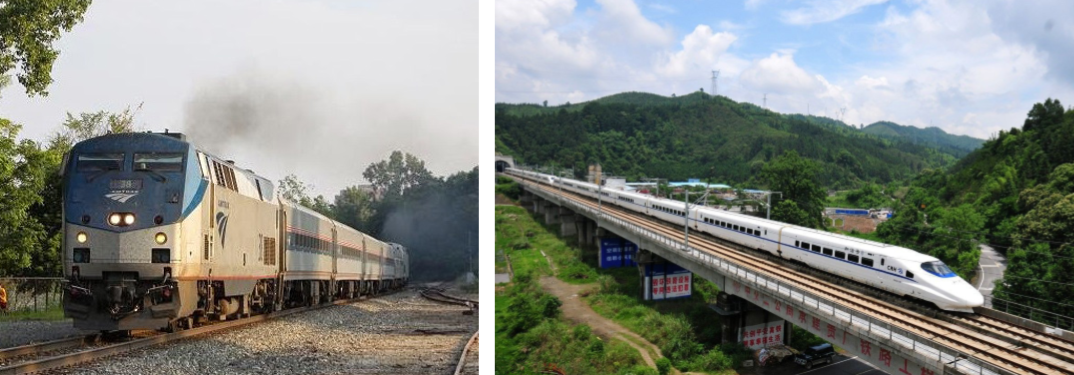
The capitalist media have had a great deal of trouble “dealing” with the PRC’s obvious successes. They always try to find something on which to attack “Communist China.” One area that they thought they were on a winner on is pollution. China is the world’s biggest emitter of carbon dioxide gases. But this is only because China has the most number of people in the world! Per person, China’s emission of CO2 gases is actually nearly two and a half times less than both the U.S. and Australia’s (see: https://www.ucsusa.org/global-warming/science-and-impacts/science/each-countrys-share-of-co2.html#.W9uZ2_ZuIc9 ). Then there is the obvious reality that while the PRC is diligently instituting policies to reduce pollution like promoting electric cars, favouring renewable energy and further expanding public transport, the leader of the capitalist “free world” rants – and tweets – that the concept of global warming is … a conspiracy created by China!
At other times, the propagandists for capitalism have to grudgingly accept China’s development successes. Yet when they admit this they suddenly stop referring to “Communist China” but, instead, claim that these successes are due to “Chinese capitalism” or more recently to “state capitalism Chinese style.” As part of this big lie, they claim that China only started making progress after it started instituting market reforms in the late 1970s, which the Western media, when they need to, deceitfully equate with capitalist restoration. However, the truth is that the achievements that the PRC has made over the last four decades have been based on the terrific advances in health care, education and heavy industry development during the first three decades of its existence. Thus, in the period from the founding of the socialistic PRC to the time that the pro-market, “reform and opening up” policy was first instituted, China achieved a miracle in health care improvement unprecedented in the rest of the world. In just these 29 years, the PRC increased the average life expectancy of its people from 34 years to over 67 years … and this in the world’s most populous country!
What has made it easier for the Western media to avoid crediting socialism for China’s obvious success in poverty alleviation is the PRC leadership’s own reticence to stress the PRC’s socialistic character in international forums and meetings. As part of its policy of pursuing “friendly relations with all countries irrespective of their social system” – i.e. of attempting to have “friendly coexistence” with capitalist powers – China’s ruling bureaucracy seeks to avoid “offending” the capitalist rulers of the U.S.A, Australia and all the rest of them by speaking too proudly about its socialistic system in the international arena. Instead, they seek to stress any “common” features that China shares with the capitalist countries. They have tried to show that China, her system and her corporations are not all that different to those in capitalist societies.
Fortunately, this practice is starting to change to some degree. For the recent 200th anniversary of Karl Marx’s birth, China donated a giant bronze statue of Marx to his hometown of Trier in western Germany. The anniversary itself was given a very high profile by the Chinese government and official media. This included a grand commemoration meeting involving all of China’s top leaders at the Great Hall of People. Speaking in front of a giant portrait of Marx that faced his audience of 3,000 participants, PRC leader Xi Jinping stressed the importance of maintaining Marxism as China’s guiding ideology. He also called for Chinese communists to study, learn and practice Marxism. Furthermore, one of the notable aspects of the 19th Congress of the Communist Party of China congress that was held late last year was that it signalled that the PRC’s ruling party would start speaking more proudly about its socialistic course in the international arena. Indeed, official Chinese statements have, for the first time in decades, even advocated the path of “socialism with Chinese characteristics” as a model for other countries – albeit only for other “developing countries.” This is still a long way from an internationalist policy of supporting revolutionary class struggle of the working class masses in the capitalist countries. Nevertheless, what this partial shift means is that it will now be harder for the capitalist-owned media to insinuate that China’s social achievements have no connection to socialism.
Moreover, as the open hostility to China of the U.S. and Australian ruling classes intensifies, the mainstream Western media and capitalist politicians have themselves found it more necessary to speak of “Communist China” as they launch one anti-China scare campaign after another. Despite this, most of the socialist left in Australia – including the three biggest far-left groups: Socialist Alliance, Socialist Alternative and Solidarity – claim that the PRC is just another capitalist country. This bogus “analysis” forms a convenient excuse for these groups to avoid the difficult and often unpopular task of defending the PRC against capitalist attacks. Instead, the “China is capitalist” “analysis” enables these groups to join the U.S. and Australian rulers in supporting anti-communist, anti-PRC movements. For example, Socialist Alternative’s report on the 19th Congress of the Communist Party of China (see: https://www.socialistalternative.org/2017/11/20/xi-jinping-strong-chinas-strongman/) attacks the PRC with many of the same arguments used by the most right-wing Murdoch media hacks. They cover the anti-socialist essence of their position by, of course, claiming that China is just conducting another form of capitalism. Yet they can’t help exposing the fundamentally right-wing content of their stance. For example, their article hails the now dead, Western media-lionised, neo-conservative “dissident” Liu Xiaobo and his wife. An ardent supporter of the 2003 U.S. invasion of Iraq, Liu Xiaobo’s Charter 08 calls for the privatisation of China’s dominant state-owned enterprises, while masking the capitalist restorationist essence of his platform with calls for “democracy” – “democracy” intended to enable pro-capitalist forces to gain greater “rights” to leverage their wealth to grab back power. Indeed, the article published by Socialist Alternative attacks the imperialist powers for not having done enough to back Liu Xiaobo and his ilk. More generally, sounding like hard right-wing neo-cons themselves, they berate Western capitalist governments and media for not standing up to China and even for “political subservience” to her! Let’s get real! Western capitalist regimes have been sending their war ships thousands of kilometres from their own shores to provoke China in waters near her coast. They have provided massive funding for anti-communist Chinese NGOs, “dissidents” and exile groups and given huge arms shipments to the anti-PRC, capitalist Chinese enclave of Taiwan. In Australia, joint U.S.-Australia spy bases and the U.S. military base in Darwin, as well as Australia’s own military build up are aimed largely against the PRC and her socialistic North Korean neighbour and ally. Meanwhile, the mainstream Western media have launched one anti-China propaganda campaign after another – most recently focussing on buttressing the Turnbull government’s claim that China is “interfering” in Australian affairs. And yet we have supposedly socialist groups claiming that Western capitalist governments and media are “politically subservient” to China and her ruling Communist Party. Those sort of loony claims would make outright fascist groups like Jim Saleam’s Australia First Party or Nick Folkes’ Party for Freedom proud!
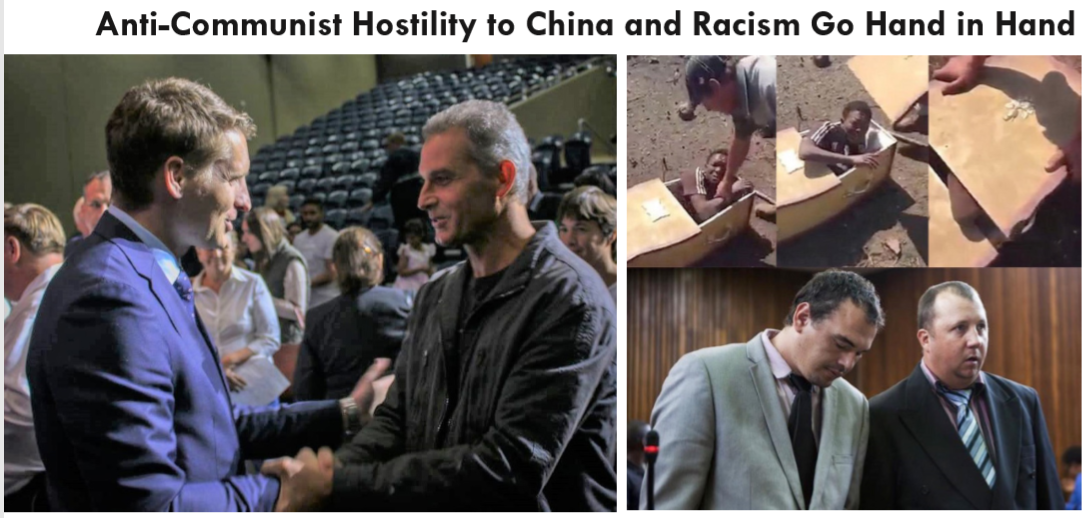
Let’s Worker Harder to Advance the Struggle For Socialism!
The success of the Peoples Republic of China in lifting people out of poverty and improving their lives is undeniable. The capitalist media try to distract from this by attacking China over any issue they can dredge up. As a huge country with one in five of the world’s people and one where the basic socialistic order is contradicted by insurgent capitalist elements, one can of course find many true, negative stories about China. Indeed, you could probably find tens of millions of them. Yet, one will find hundreds of millions of positive stories! When the capitalist media and governments are forced to acknowledge the positive social advances in China they try to credit “capitalism” or “Chinese-style state capitalism” for it. Those wavering socialist groups that claim that China is capitalist in order to avoid having to defend her are actually helping the capitalist media in this bid to promote the capitalist system. They are saying that the hundreds of millions of people so quickly pulled out of poverty by China, the provision of low-rent public housing to tens of millions of Chinese people over the last few years and the roll-out of an excellent country-wide high-speed rail system by a country that 70 years ago was one of the poorest on earth have all been achieved … under capitalism!
Yet as people say: the proof of the pudding is in the eating. And as Tables 1 and 2 above prove, if we test what China’s society has produced versus what capitalist societies have, we see not only how much better China’s system is for the masses but how different it is to that of comparable capitalist societies.
So what conclusions should we draw from these comparisons in terms of our practical work? Firstly, we must acknowledge that these comparisons prove that the ascendancy of a workers state in China in 1949 represents a great advance for the masses relative to capitalism. Therefore, the working class of the world must unconditionally defend China and the other socialistic states (Vietnam, Cuba, North Korea and Laos) – as bureaucratically deformed and/or weakened by capitalist intrusion as they are – against capitalist military threats and pro-capitalist political and economic forces. Secondly, the comparisons show that, even when in a distorted and incomplete form, socialistic rule is far more progressive than capitalism. That proves how much better a fully socialist world will be for the masses than the capitalist-dominated one that we live in today. So, from Australia to Indonesia to India to Russia to the United States, let’s re-double our efforts to fight for world socialist revolution!
References for What a Comparison between Red China & Capitalist Countries Says About: Socialism vs Capitalism:
- Based on Forbes Global 500 list: http://fortune.com/global500/list/ , Retrieved on 8 Nov 2017. Figures exclude Hong Kong companies.
- MoneyControl site, Top Companies in India by Net Sales – BSE, https://www.moneycontrol.com/stocks/marketinfo/netsales/bse/index.html , Retrieved 13 December 2017.
- World Health Organization, World Health Statistics 2016: Monitoring health for the SDGs, Annex B: tables of health statistics by country, WHO region and globally, www.who.int/gho/publications/world_health_statistics/2016/EN_WHS2016_AnnexB.pdf?ua=1 , Retrieved 21 December 2017.
- World Health Organization, Global Health Observatory data repository, Children aged <5 years wasted, Data by country, apps.who.int/gho/data/node.main.CHILDWASTED?lang=en , Retrieved 21 December 2017.
- World Health Organization, Global Health Observatory data repository, Children aged <5 years underweight, Data by country, http://apps.who.int/gho/data/node.main.CHILDUNDERWEIGHT?lang=en , Retrieved 21 December 2017.
- World Bank, Poverty headcount ratio at $1.90 a day (2011 PPP) (% of population), https://data.worldbank.org/indicator/SI.POV.DDAY?name_desc=true&type=shaded&view=map (then Download data tables), Retrieved 21 December 2017.
- Wikipedia, List of countries by literacy rate, (based on UNESCO data), https://en.wikipedia.org/wiki/List_of_countries_by_literacy_rate , retrieved 21 December 2017.
- United Nations Office on Drug and Crime site, UNODC Statistics, Intentional homicide, counts and rates per 100,000 population, for 2014 – latest year available when retrieved 21 December 2017, https://data.unodc.org/ (then click “Crime and Criminal Justice” and then “Homicides” and then “Homicide Counts and Rates” and then search by country criteria entering China as the country).
- United Nations Office on Drug and Crime site, UNODC Statistics, Intentional homicide, counts and rates per 100,000 population, for 2014 – latest year available when retrieved 21 December 2017, https://data.unodc.org/ (then click “Crime and Criminal Justice” and then “Homicides” and then “Homicide Counts and Rates” and then search by country criteria entering India as the country).
- World Health Organization site, Suicide rates, age-standardized Data by country, http://apps.who.int/gho/data/node.main.MHSUICIDEASDR?lang=en , Retrieved 11 December 2017 (for the year 2015 – latest year that data is available for).
- World Bank, Labor force participation rate, male (% of male population ages 15+) (modeled ILO estimate), https://data.worldbank.org/indicator/SL.TLF.CACT.MA.ZS , retrieved 21 December 2017.
- World Bank, Labor force participation rate, female (% of female population ages 15+) (modeled ILO estimate), https://data.worldbank.org/indicator/SL.TLF.CACT.FE.ZS , retrieved 21 December 2017.
- Based on Forbes Global 500 list: fortune.com/global500/list/ , Retrieved on 8 Nov 2017. Figures for China exclude Hong Kong companies.
- “РБК 500: Крупнейшие компании России”, https://www.rbc.ru/rbc500/, Retrieved 8 Nov 2017.
- Number of billionaires from Forbes, The World’s Billionaires 2017 Ranking, https://www.forbes.com/ billionaires/list/#version:static, Retrieved 11 December 2017; population numbers from Worldometers, Countries in the world by population (2017), www.worldometers.info/world-population/population-by-country/
- As Russia has only a monthly minimum wage and the U.S. only hourly minimum wages, while China has both, two comparisons of relative minimum wages are given (one between China and the U.S. and the other between China and Russia). The two comparisons lead to quite different numbers for China, as China’s hourly minimum wages are per capita relatively much higher than those based on its monthly minimum wage, as the authorities set higher hourly wages to protect incomes of part-time workers. Note the figures actually greatly underestimate Chinese effective wages as Chinese employers are in addition to the actual wage required to put into various employee funds a further amount equivalent to around 50% of their direct wage payments – including medical insurance, old age insurance, unemployment insurance, a housing fund and accident insurance.
- Minimum wages for China and Russia were taken from WageIndicator.org, https://wageindicator.org/salary/minimum-wage .
- Minimum wages for the U.S. were taken from United States Department of Labour site, Minimum Wage Laws in the States – September 30, 2017, https://www.dol.gov/whd/minwage/america.htm, Retrieved 11 December 2017
- For China given that wages vary from province to province and within different areas of the province, figures are based on dividing the annual minimum wage of areas by the per capita GDP for the particular area as given by Wikipedia, List of Chinese administrative divisions by GDP per capita, https://en.wikipedia.org/wiki/List_of_Chinese_administrative_divisions_by_GDP_per_capita , Retrieved 11 Dec 2017 for the year 2016. The lowest ratio shown in the table is for the Shanghai region for the calculations based on hourly minimum wage and for Beijing for the calculations based on the monthly minimum wage; and the highest is for the Tibetan Autonomous Region for both comparisons.
- For the U.S., given that wages vary from state to state, figures were based on dividing the annual minimum wage of states by their per capita GDP for the state as given by Bureau of Economic Analysis site, Regional Data – Per capita real GDP by state, https://www.bea.gov/iTable/drilldown. cfm?reqid=70&stepnum=11&AreaTypeKeyGdp=1&GeoFipsGdp=XX&ClassKeyGdp=naics& ComponentKey=1000&IndustryKey=1&YearGdp=2016&YearGdpBegin=-1&YearGdpEnd=-1&UnitOfMeasureKeyGdp=levels&RankKeyGdp=1&Drill=1&nRange=5, Retrieved 11 December 2017.The lowest figure is for District of Columbia (with a similar figure for Wyoming) and the highest is for Arizona.
- The figure is based on dividing Russia’s annualised minimum wage by per capita GDP calculated based on a gross GDP for 2016 given by Fact Sphere – Project Russia site, Russian GDP Volume, http://www. factosphere.com/macro/gdp/%5C%5CFILESERVER%5Cmacro%5Cgdp%5Cforecasts, and a 2016 population given by Worldometers, Russia Population, http://www.worldometers.info/world-population/russiapopulation/
- World Prison Brief, Highest to Lowest – Prison Population Rate, http://www.prisonstudies.org/highest-to-lowest/prison_population_rate?field_region_taxonomy_tid=All , Retrieved 11 December 2017.
- Total number of killings taken from Wikipedia, List of killings by law enforcement officers in China, https://en.wikipedia.org/wiki/List_of_killings_by_law_enforcement_officers_in_China, Retrieved 11 December 2017.
- Guardian, The Counted – People Killed By Police in the U.S. (2015), https://www.theguardian.com/us-news/ng-interactive/2015/jun/01/the-counted-police-killings-us-database , Retrieved 11 December 2017.
- United Nations Office on Drug and Crime site, UNODC Statistics, Intentional homicide, counts and rates per 100,000 population, for 2014 – latest year available when retrieved 21 December 2017, https://data.unodc.org/ (then click “Crime and Criminal Justice” and then “Homicides” and then “Homicide Counts and Rates” and then search by country criteria entering China as the country).
- United Nations Office on Drug and Crime site, UNODC Statistics, Intentional homicide, counts and rates per 100,000 population, for 2014 – latest year available when retrieved 21 December 2017, https://data.unodc.org/ (then click “Crime and Criminal Justice” and then “Homicides” and then “Homicide Counts and Rates” and then search by country criteria entering U.S. as the country).
- United Nations Office on Drug and Crime site, UNODC Statistics, Intentional homicide, counts and rates per 100,000 population, for 2014 – latest year available when retrieved 21 December 2017, https://data.unodc.org/ (then click “Crime and Criminal Justice” and then “Homicides” and then “Homicide Counts and Rates” and then search by country criteria entering Russia as the country).
- World Health Organization site, Suicide rates, age-standardized Data by country, http://apps.who.int/gho/data/node.main.MHSUICIDEASDR?lang=en, Retrieved 11 December 2017 (for the year 2015 – latest year that data is available for).
- These figures exclude the many hate-crime murders (about which statistics are hard to find) in Russia and the U.S. by people without direct connection to the Far Right.
- The Western mainstream media which is ever eager to find negative stories on China has been able to report no case of a hate crime murder in China (other than that committed by anti-communist forces based on ethnic minorities – like Uyghur-based religious fundamentalists – against members of the majority Han ethnic group).
- Total number of far-right murders taken from Slatest, The Long List of Killings Committed by White Extremists Since the Oklahoma City Bombing, https://slate.com/news-and-politics/2017/08/white-extremist-murders-killed-at-least-70-in-u-s-since-1995.html, Retrieved 11 December 2017.
- Total number of far-right murders taken from SOVA site, Old Problems and New Alliances: Xenophobia and Radical Nationalism in Russia, and Efforts to Counteract Them in 2016, https://www.sova-center.ru/en/xenophobia/reports-analyses/2017/05/d36995/ , Retrieved 11 December 2017.
- Федеральный закон от 07.02.2017 № 8-ФЗ, О внесении изменения в статью 116 Уголовного кодекса Российской Федерации, http://publication.pravo.gov.ru/Document/View/0001201702070049, Retrieved 12 December 2017
- Reuters, Putin opens monument to Stalin’s victims, dissidents cry foul, 31 October 2017, https://www.reuters.com/article/us-russia-putin-monument/putin-opens-monument-to-stalins-victims-dissidents-cry-foul-idUSKBN1CZ256 , Retrieved 12 December 2017.
- Workers World, Police attack anti-capitalist march in Moscow, 8 October 2017, https://www.workers.org/2017/10/08/police-attack-anti-capitalist-march-in-moscow/, Retrieved 12 December 2017.
- Persian Gulf War I (1991), intervention in Somalia (1992-1995), Intervention in Haiti (1994-1995), intervention in Bosnian War (1994-1995), bombing of Yugoslavia (1999), invasion of Afghanistan (2001-present), invasion of Iraq (2003 – ), war on Libya (2011), U.S. drone strikes in North-West Pakistan (2004-present), American-led intervention in Iraq-Syria (2014-present), U.S.-led involvement in Yemeni War (2015-present).
- Involvements in wars in Georgia and Abkhazia (1991-1993), intervention in Transnistria War (1992), intervention in Tajikistan Civil War (1992-1997), First Chechen War (1994-1996), Second Chechen War (1999-2009), Russia-Georgia War (2008), intervention in Syria (2015-present).
- Wikipedia, List of countries with overseas military bases, https://en.wikipedia.org/wiki/List_of_countries_with_overseas_military_bases, Retrieved 12 December 2017.
- International Campaign to Abolish Nuclear Weapons site, Nuclear arsenals, http://www.icanw.org/the-facts/nuclear-arsenals/, Retrieved 12 December 2017.
